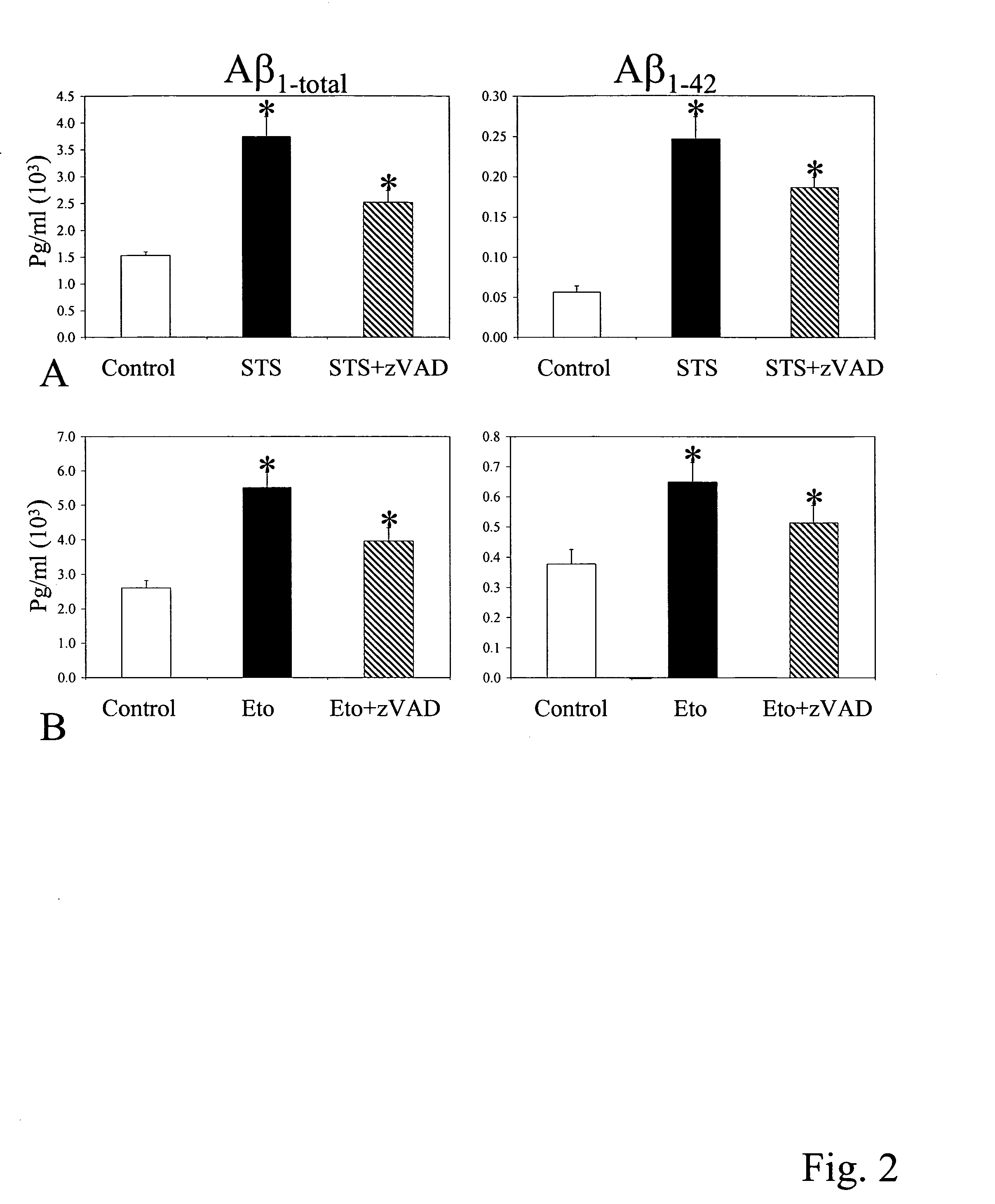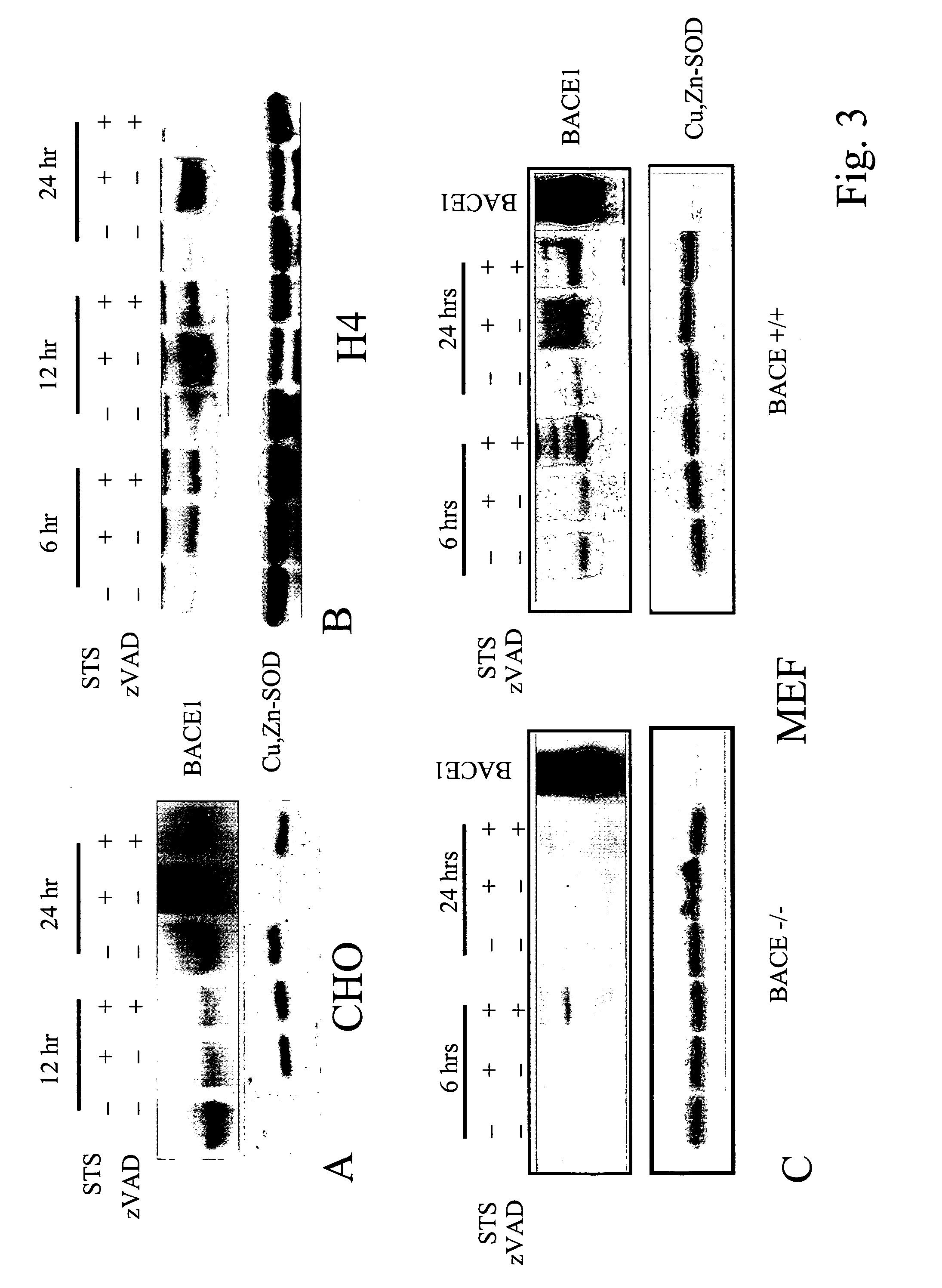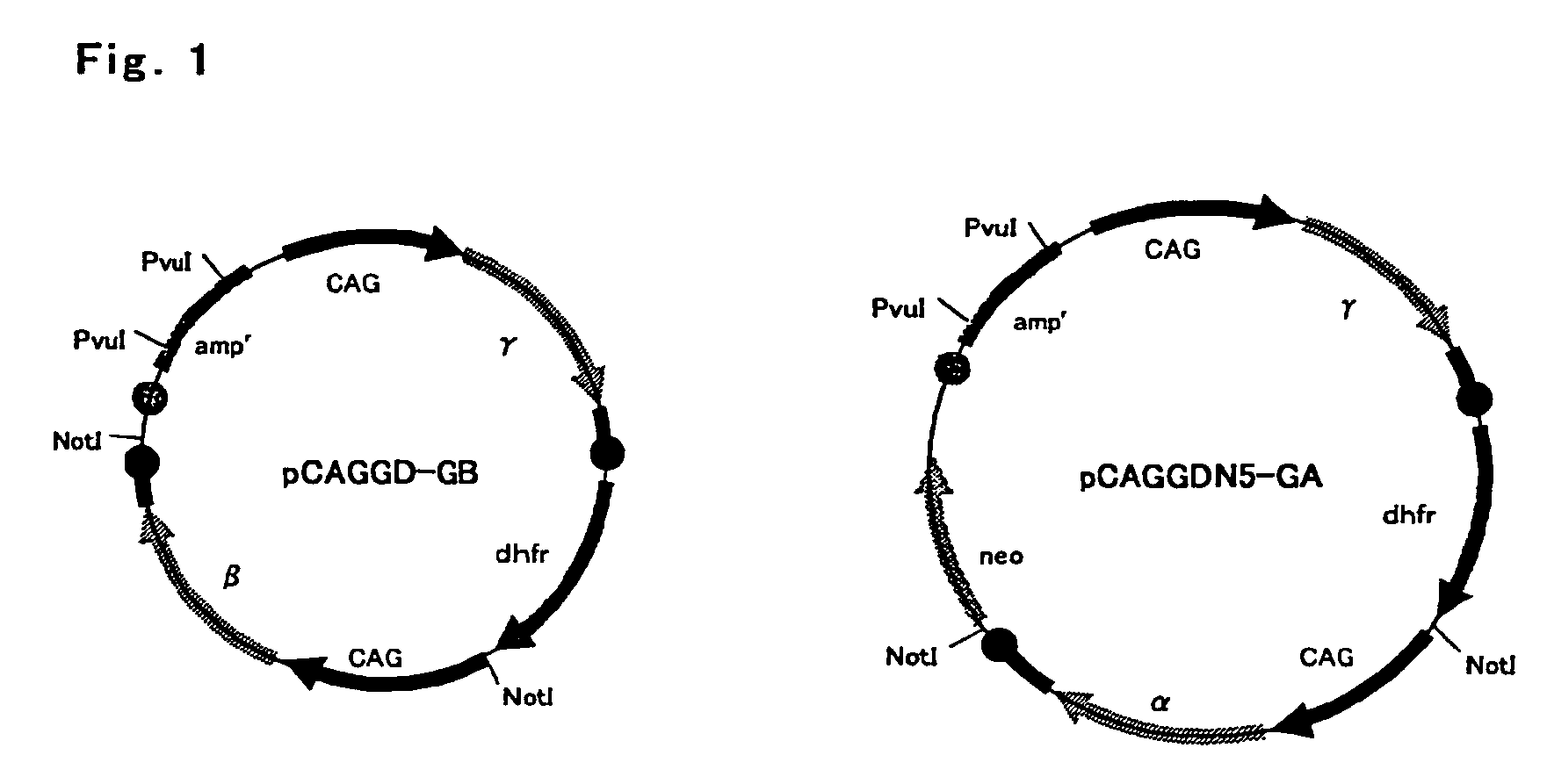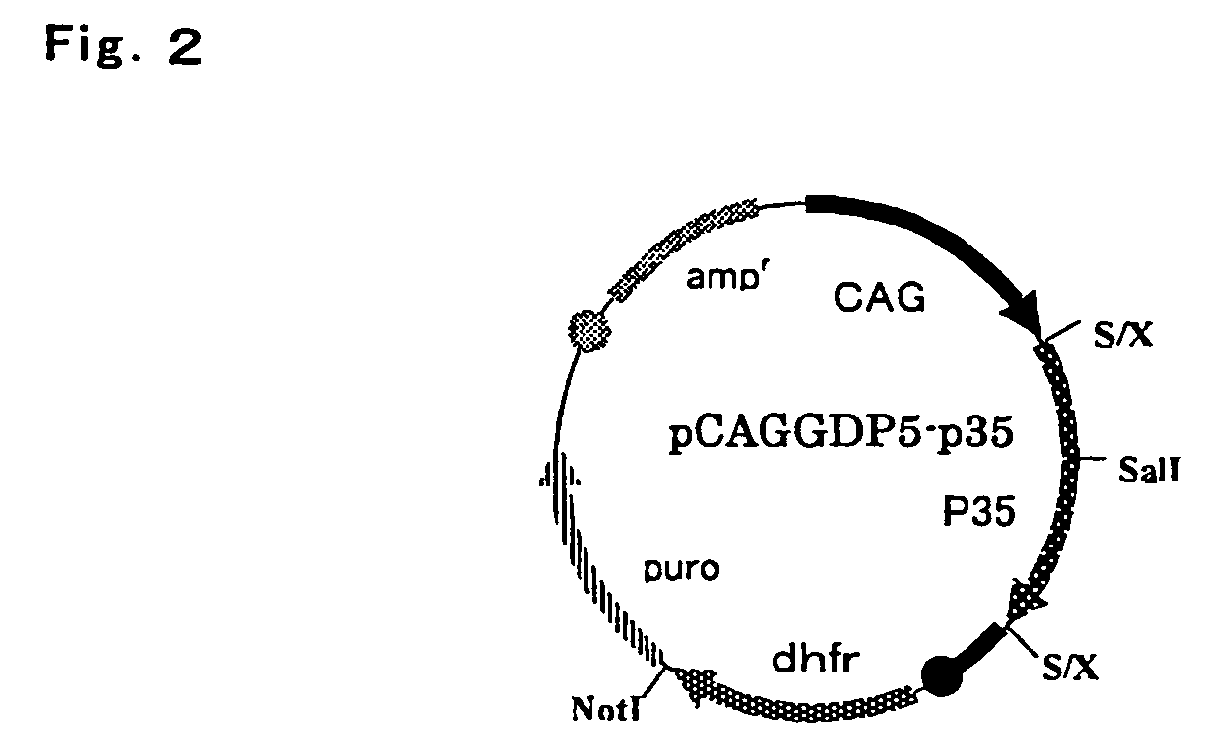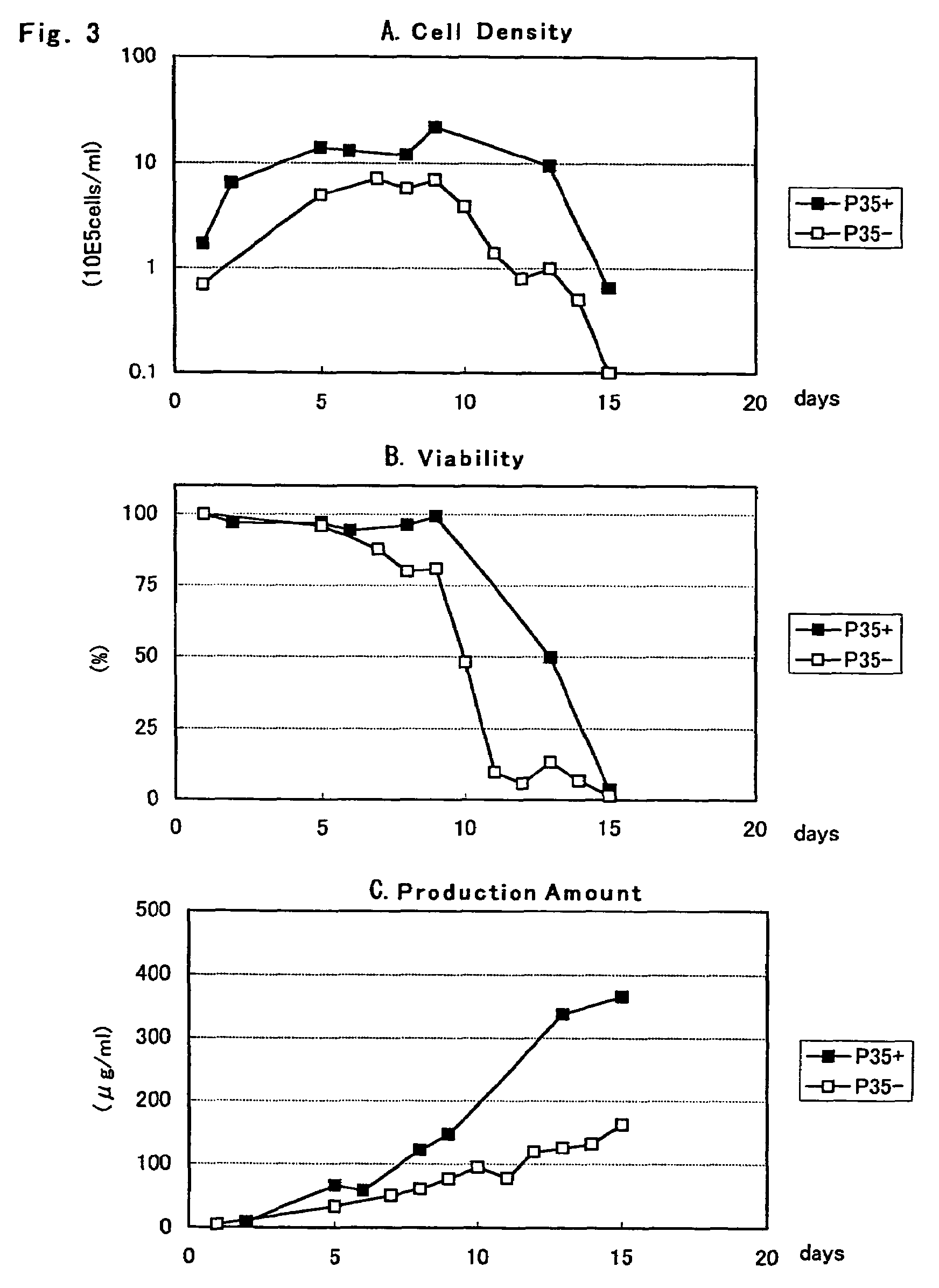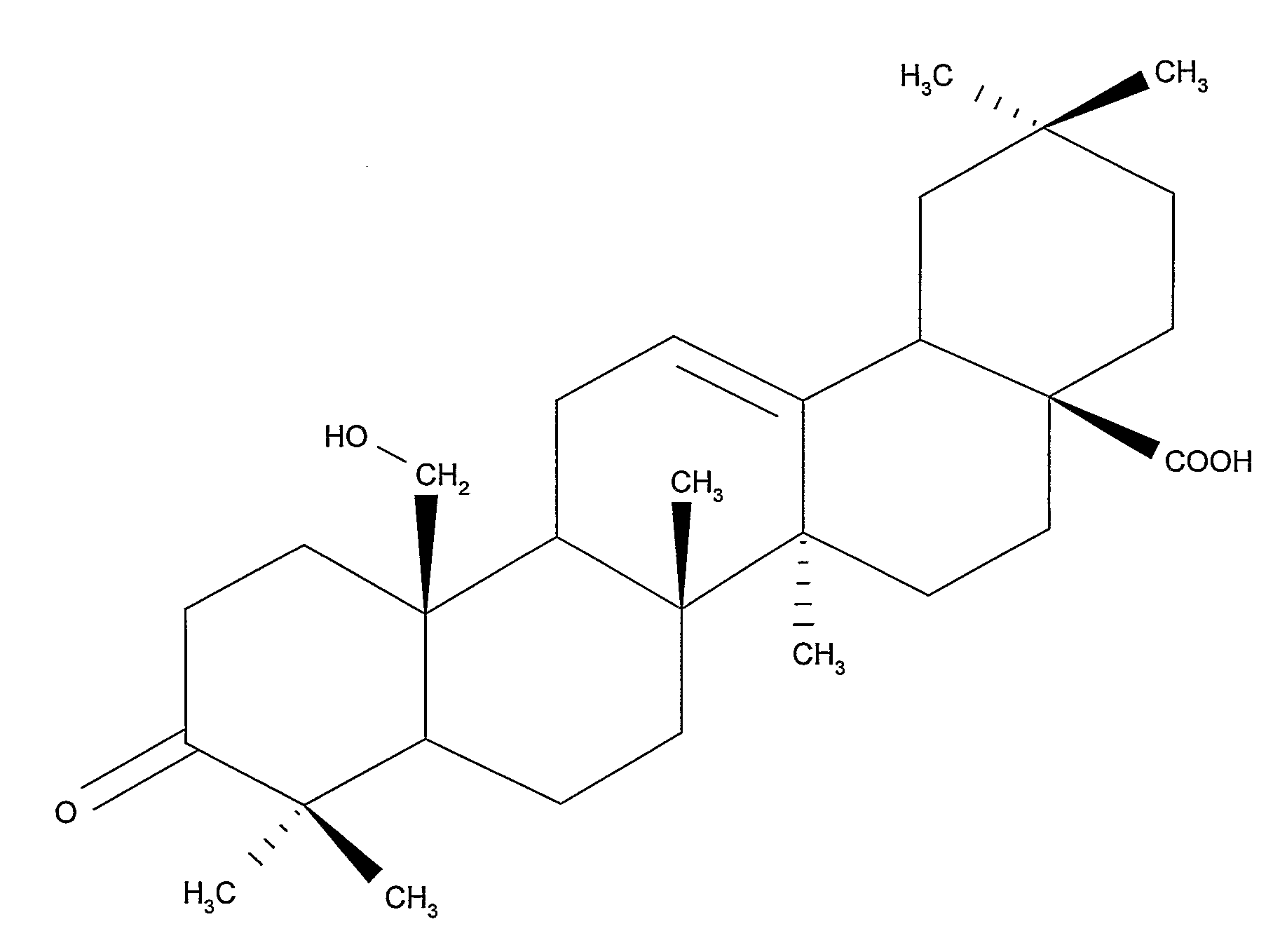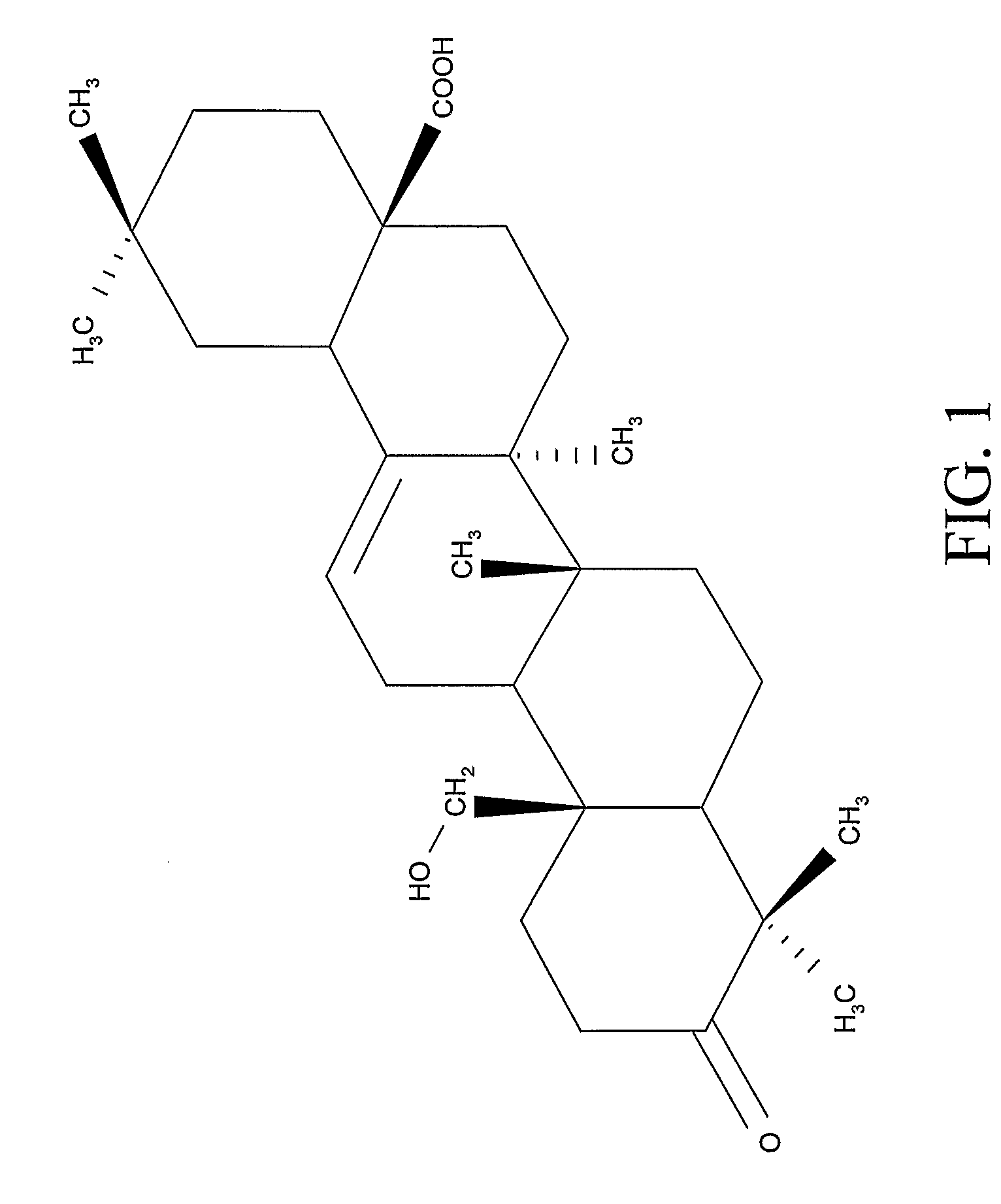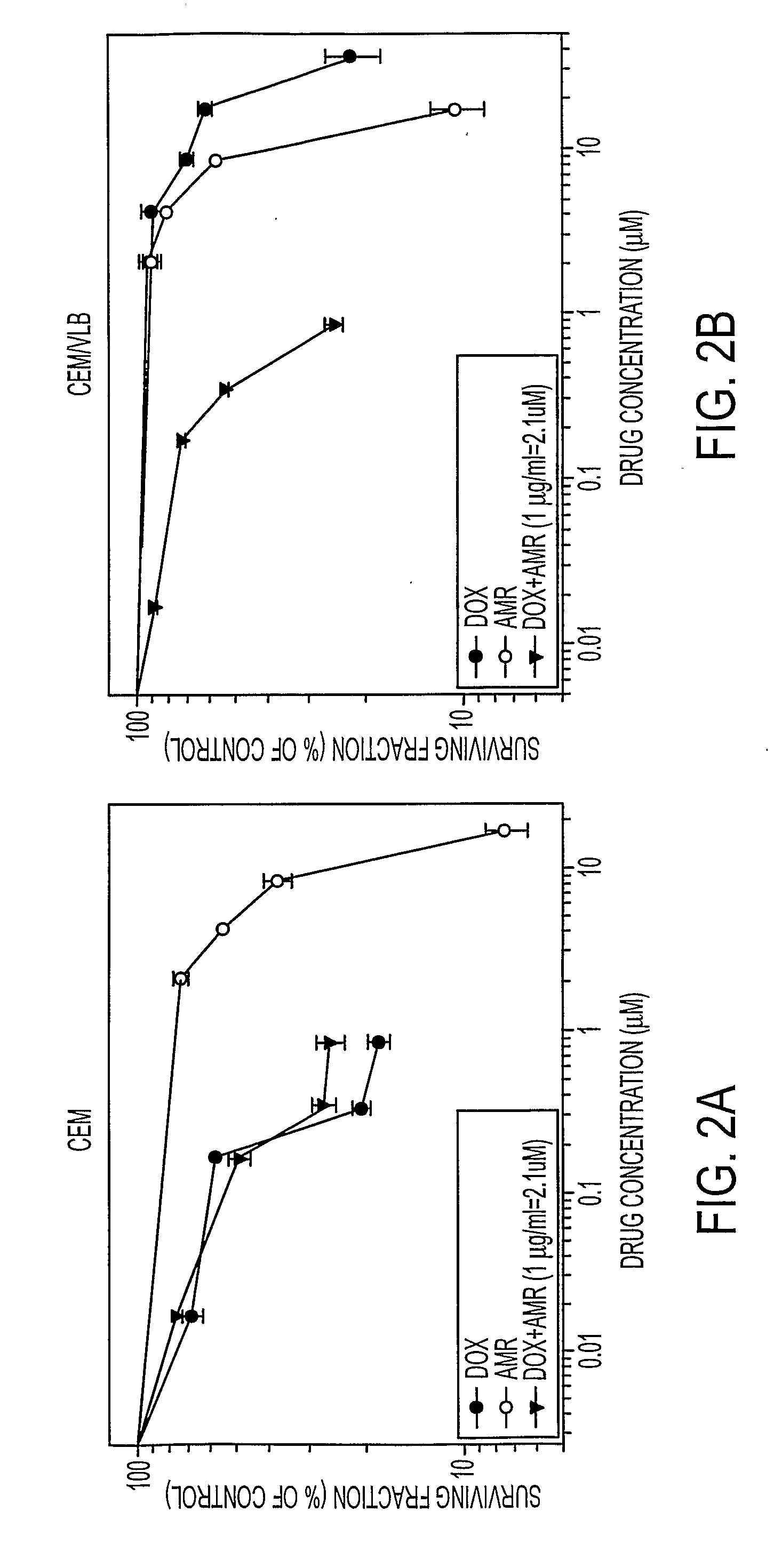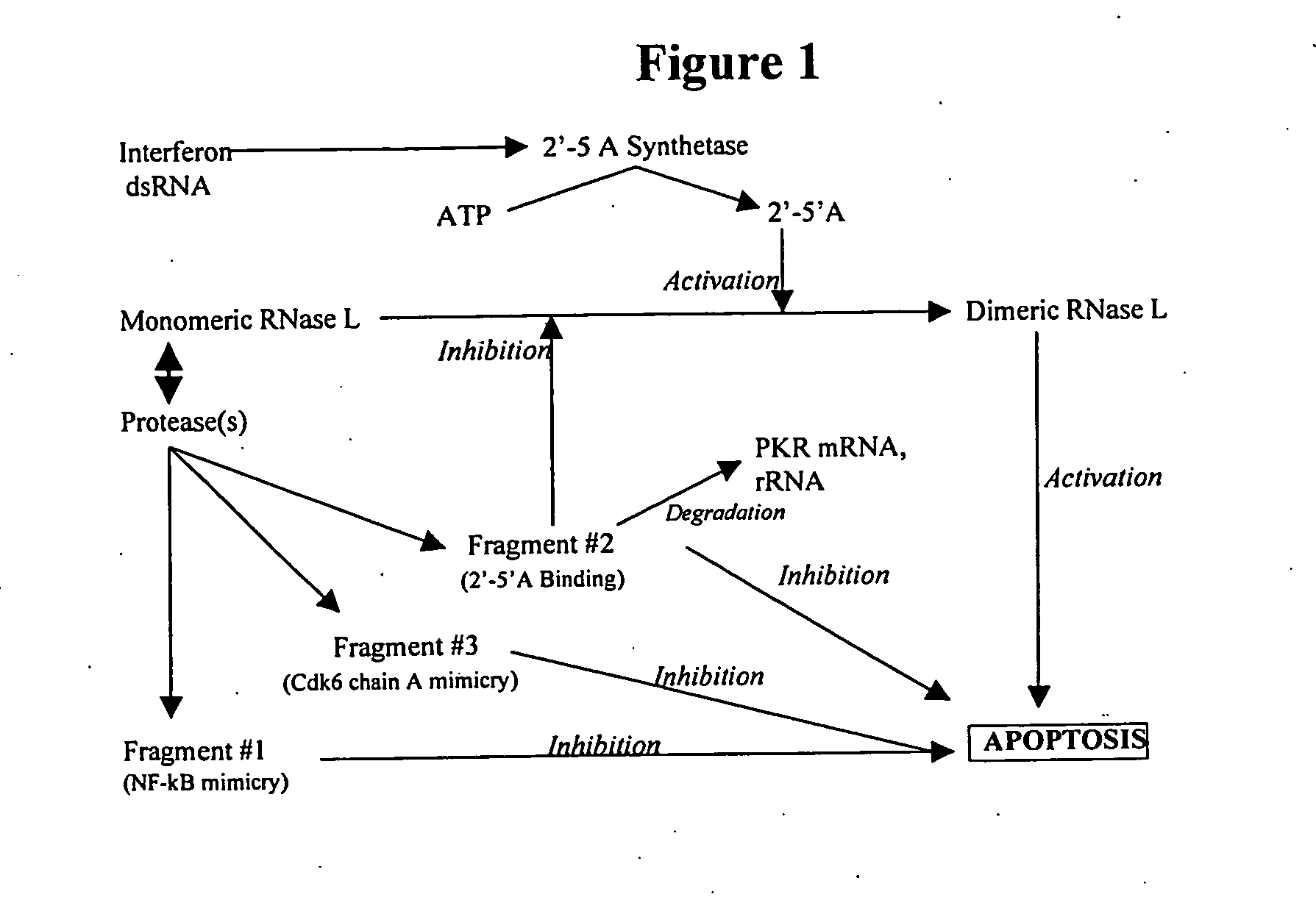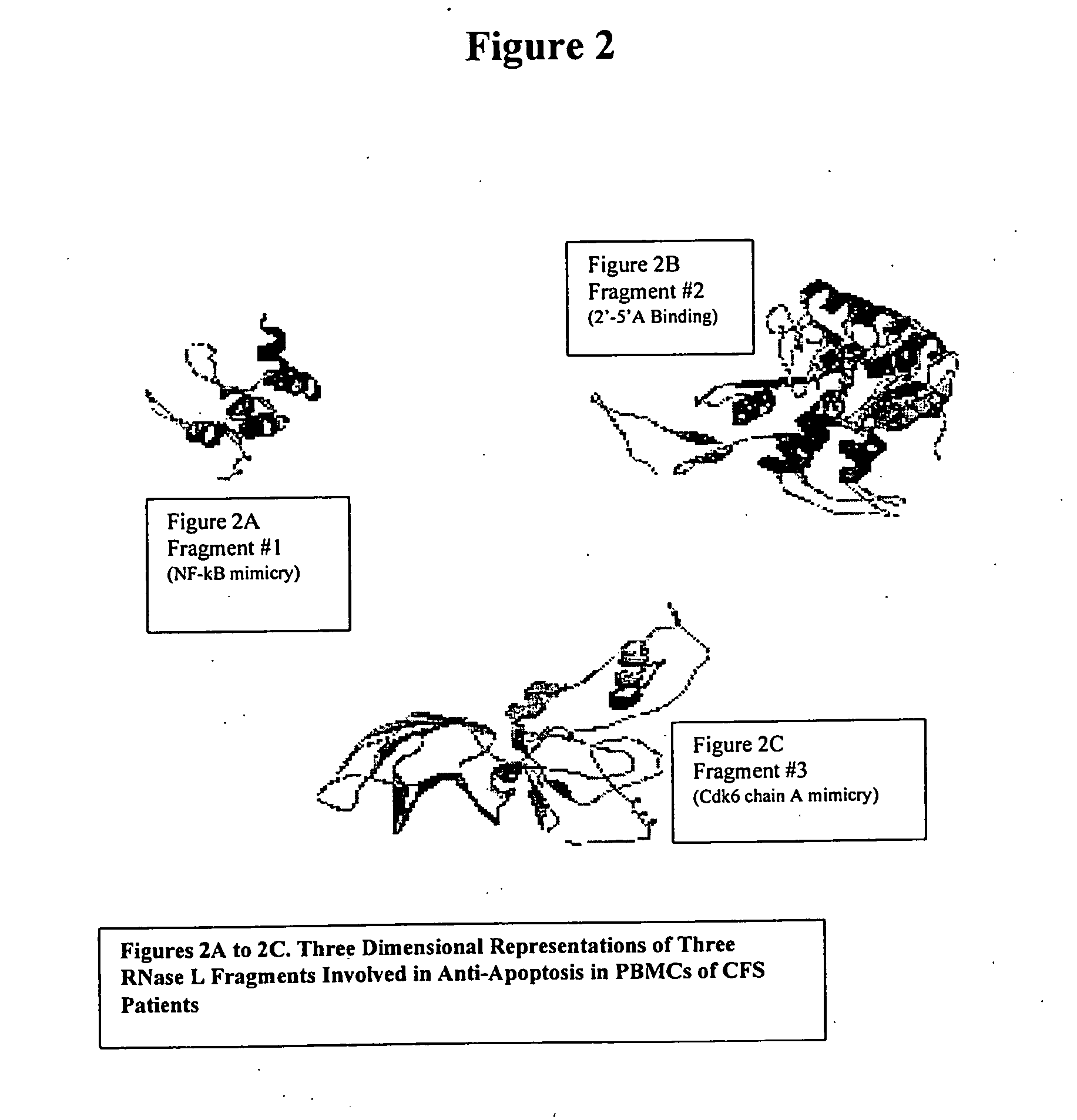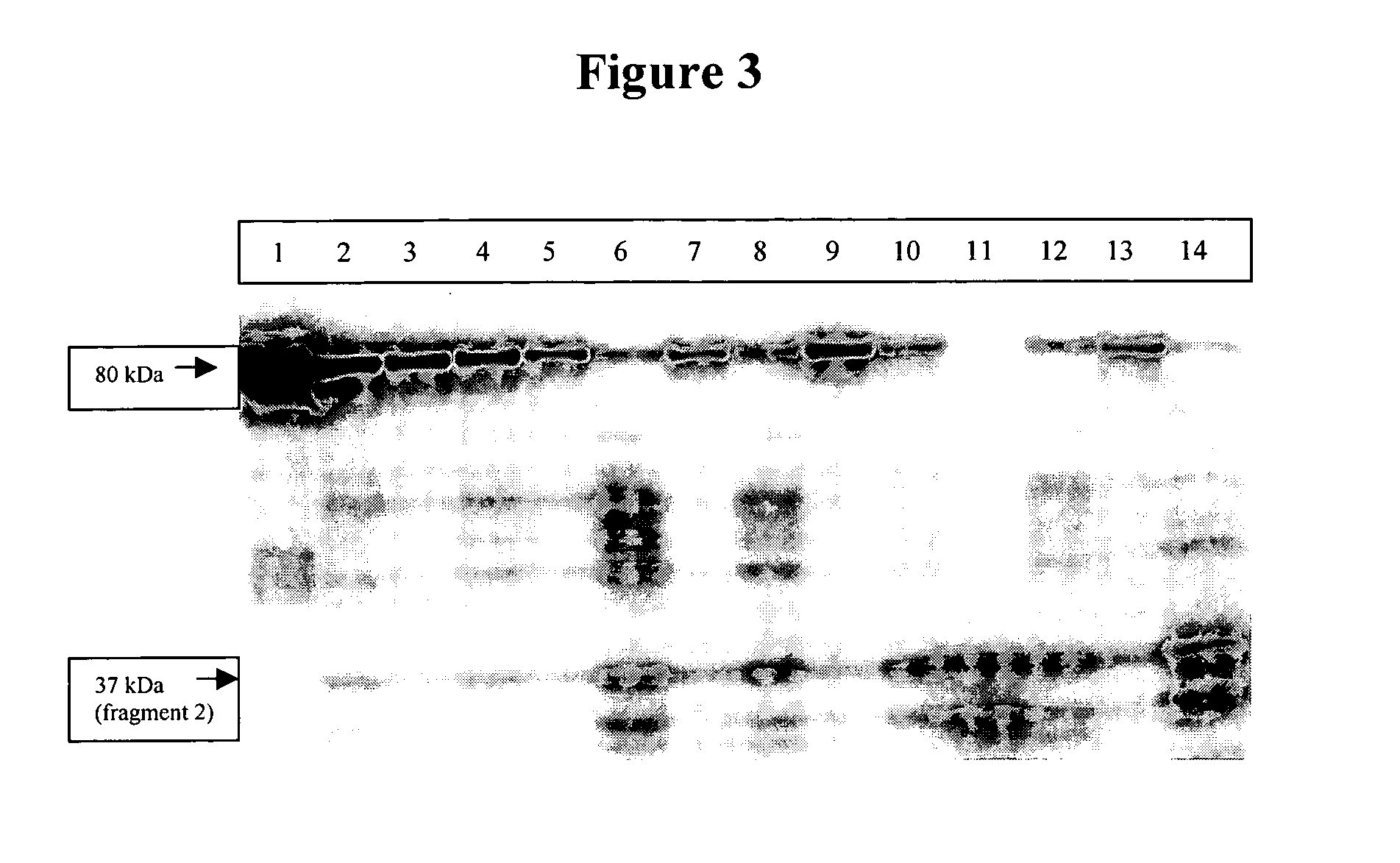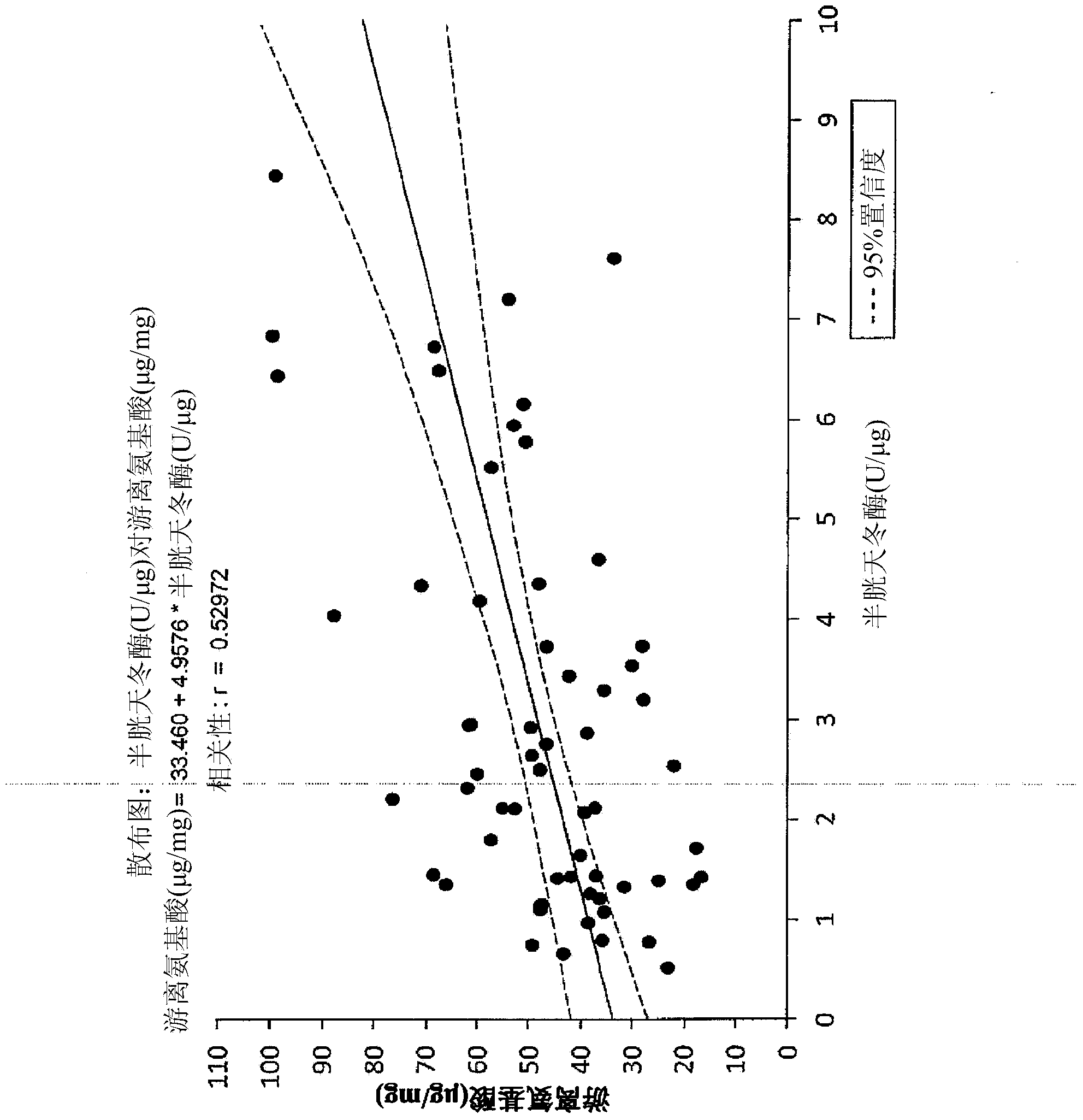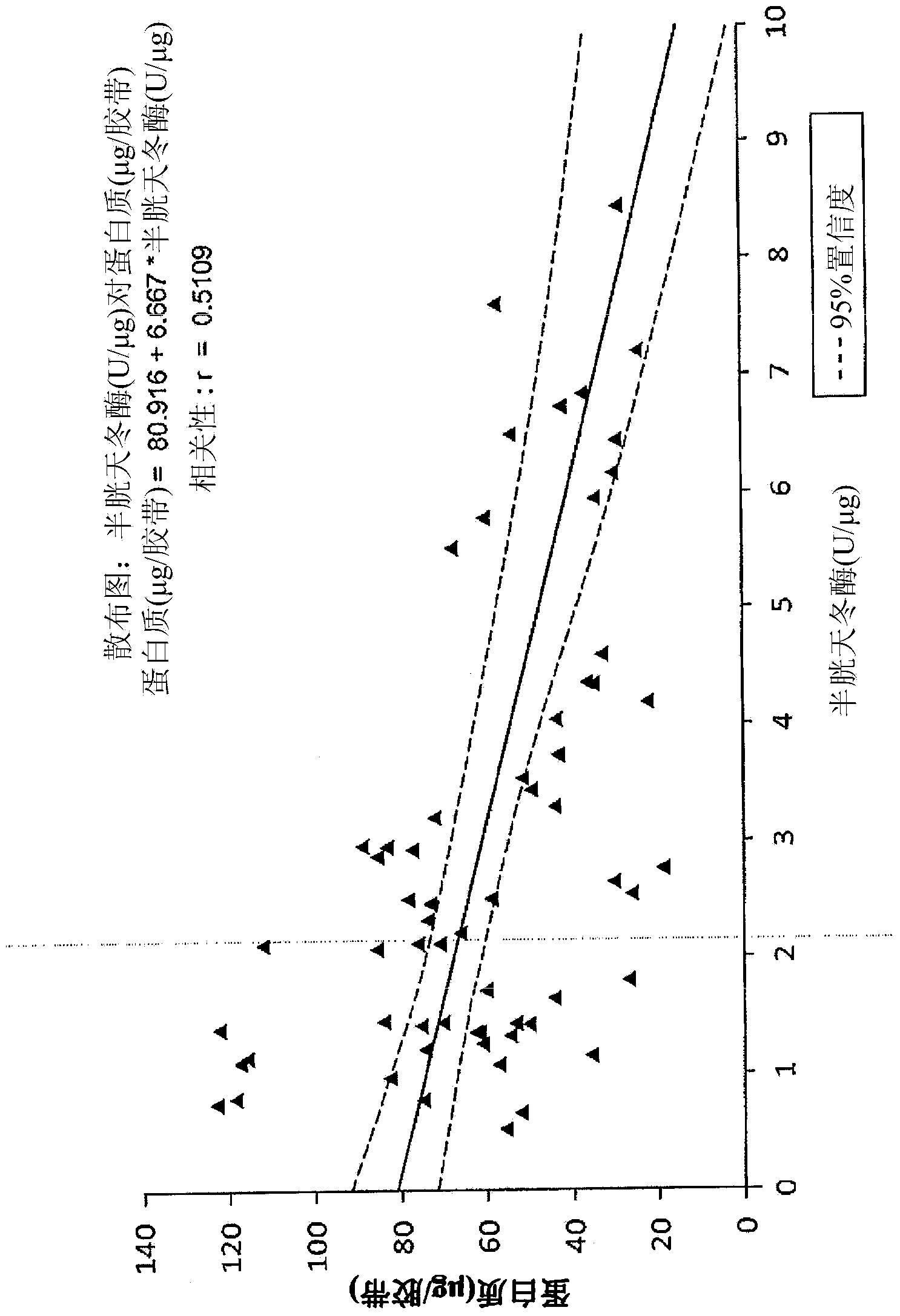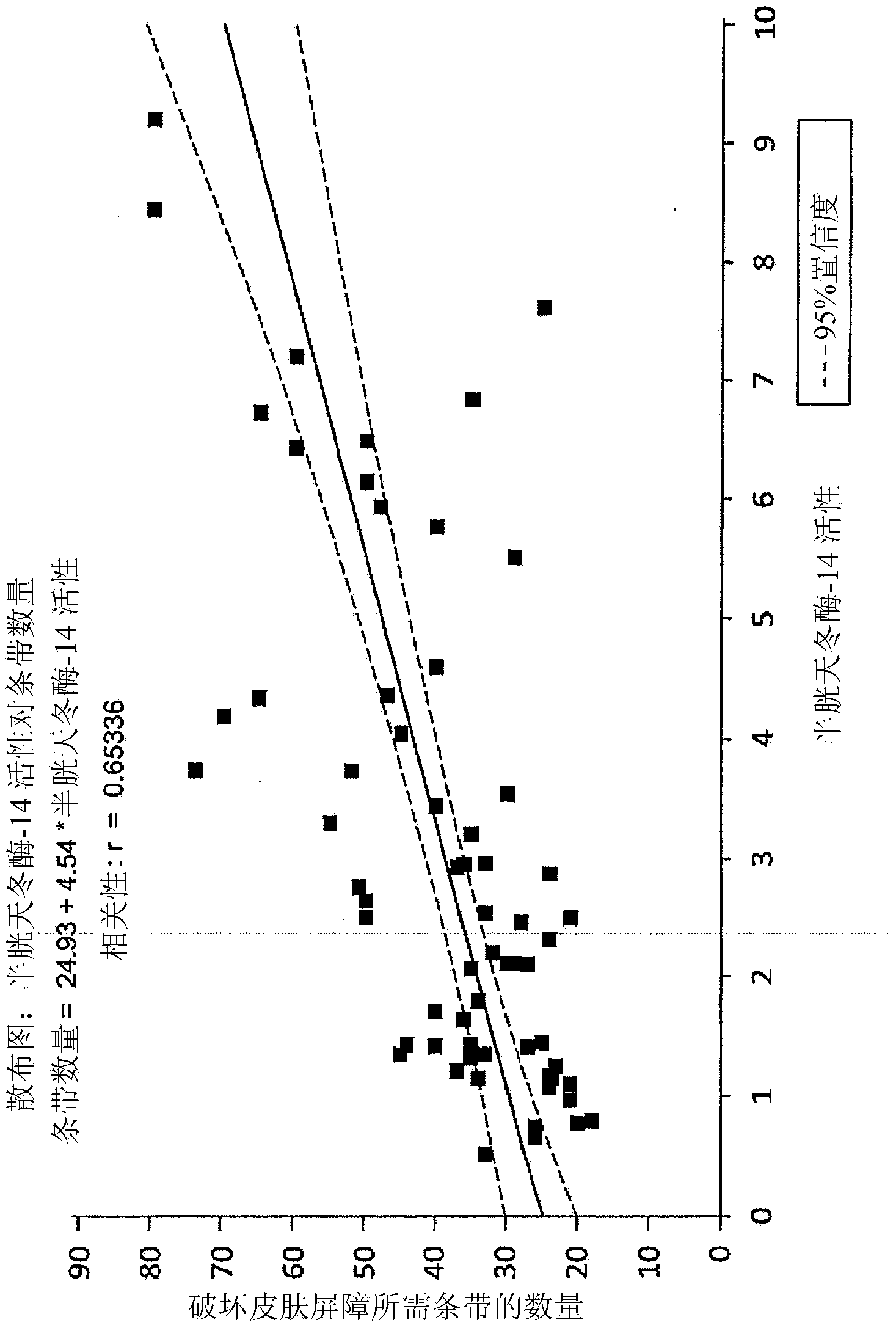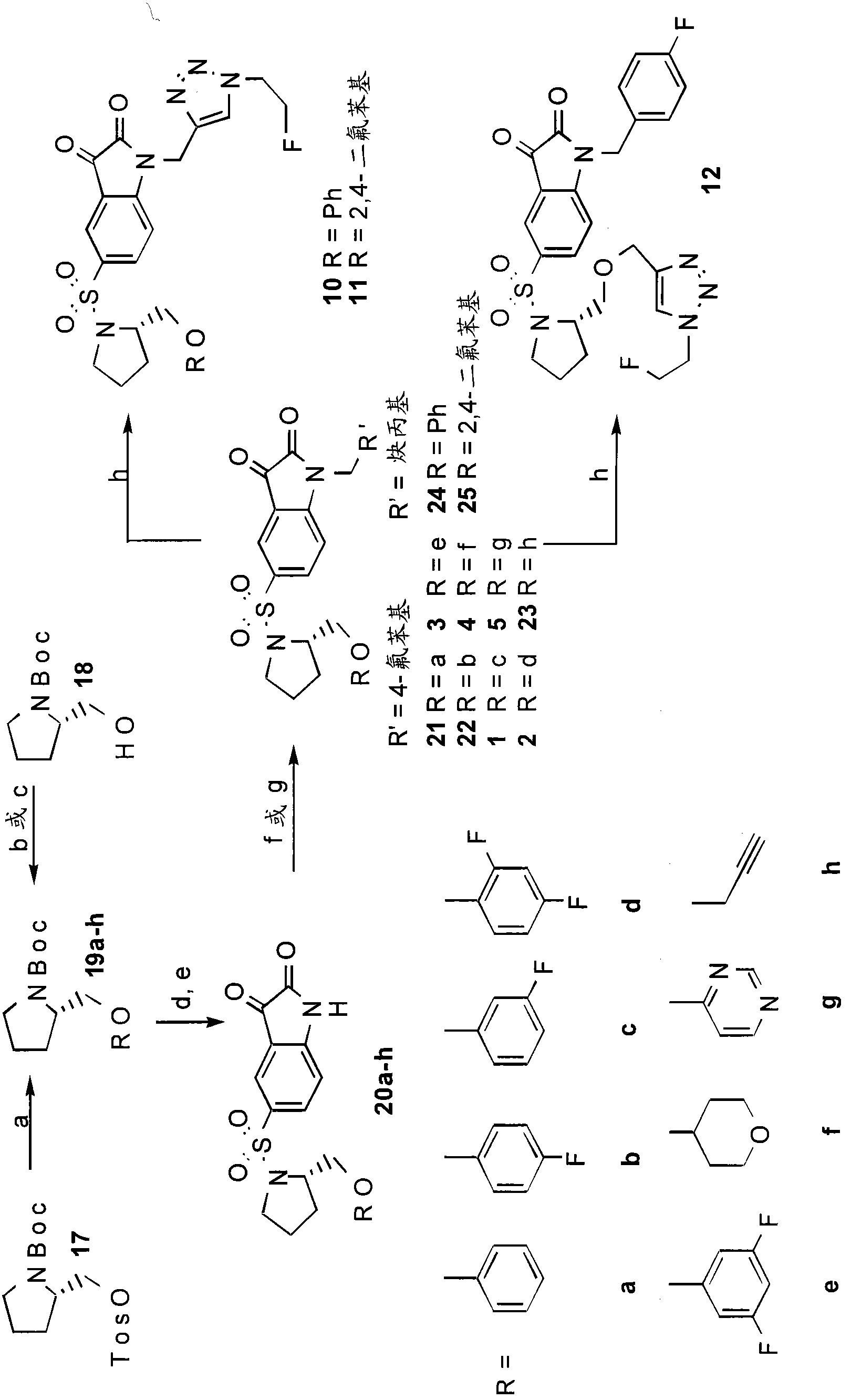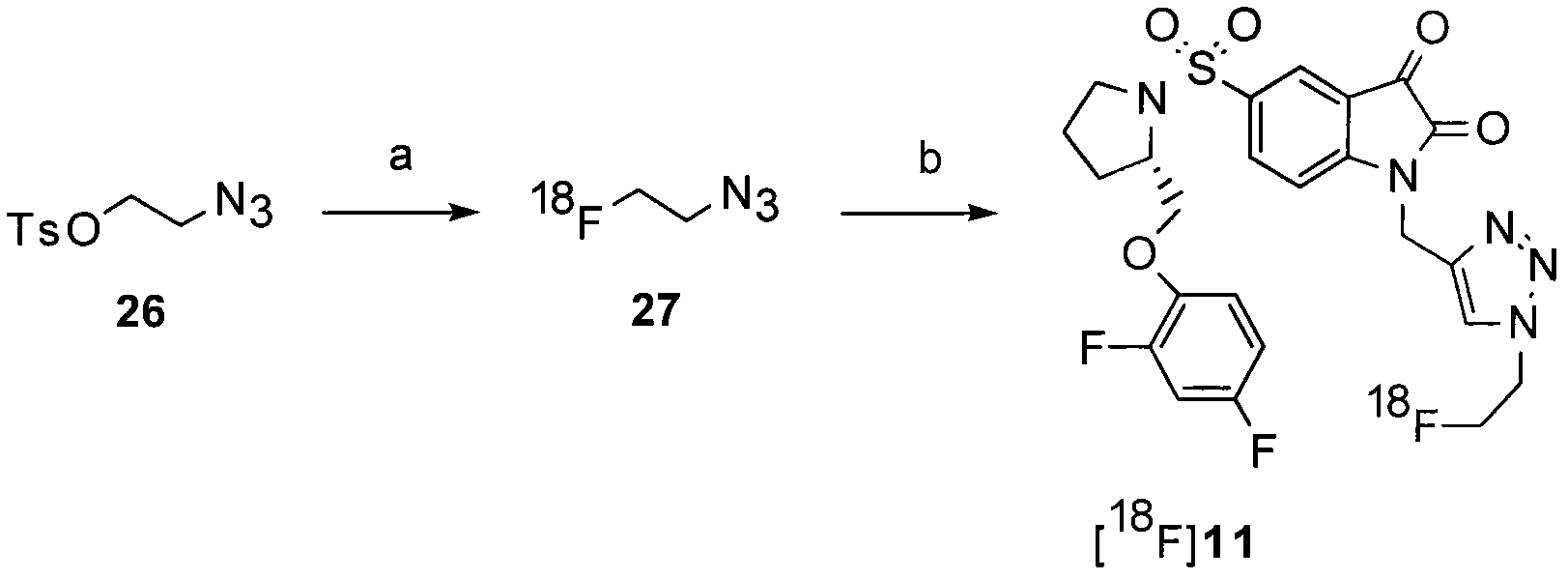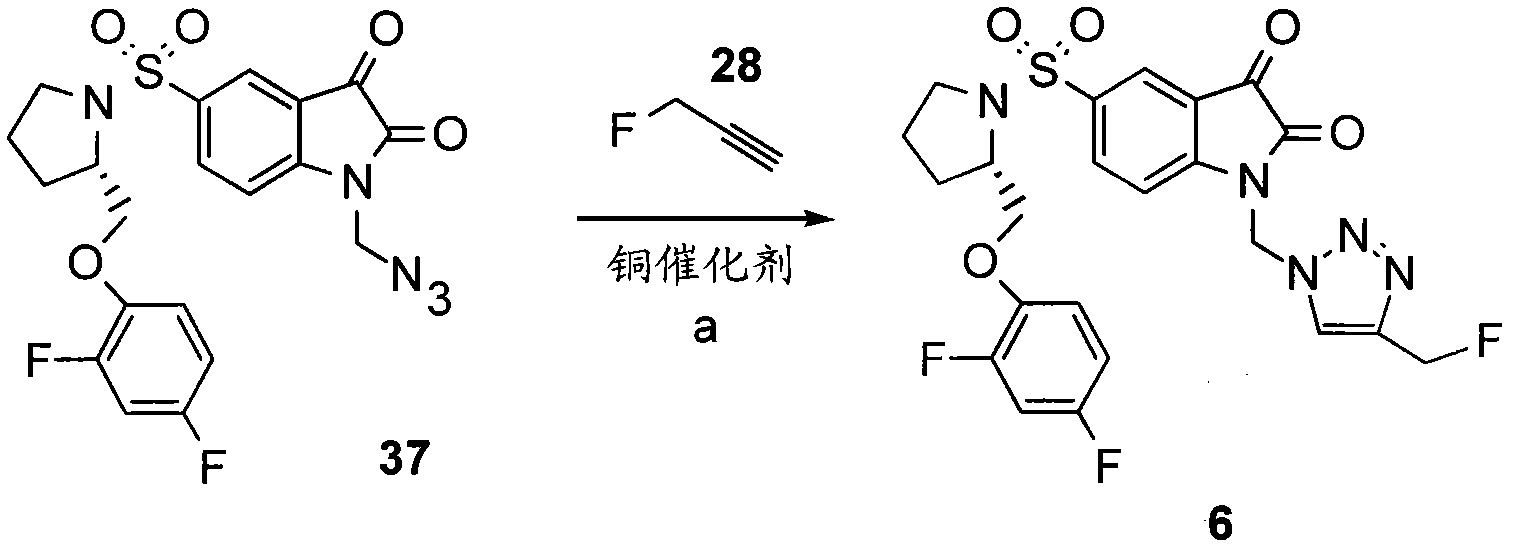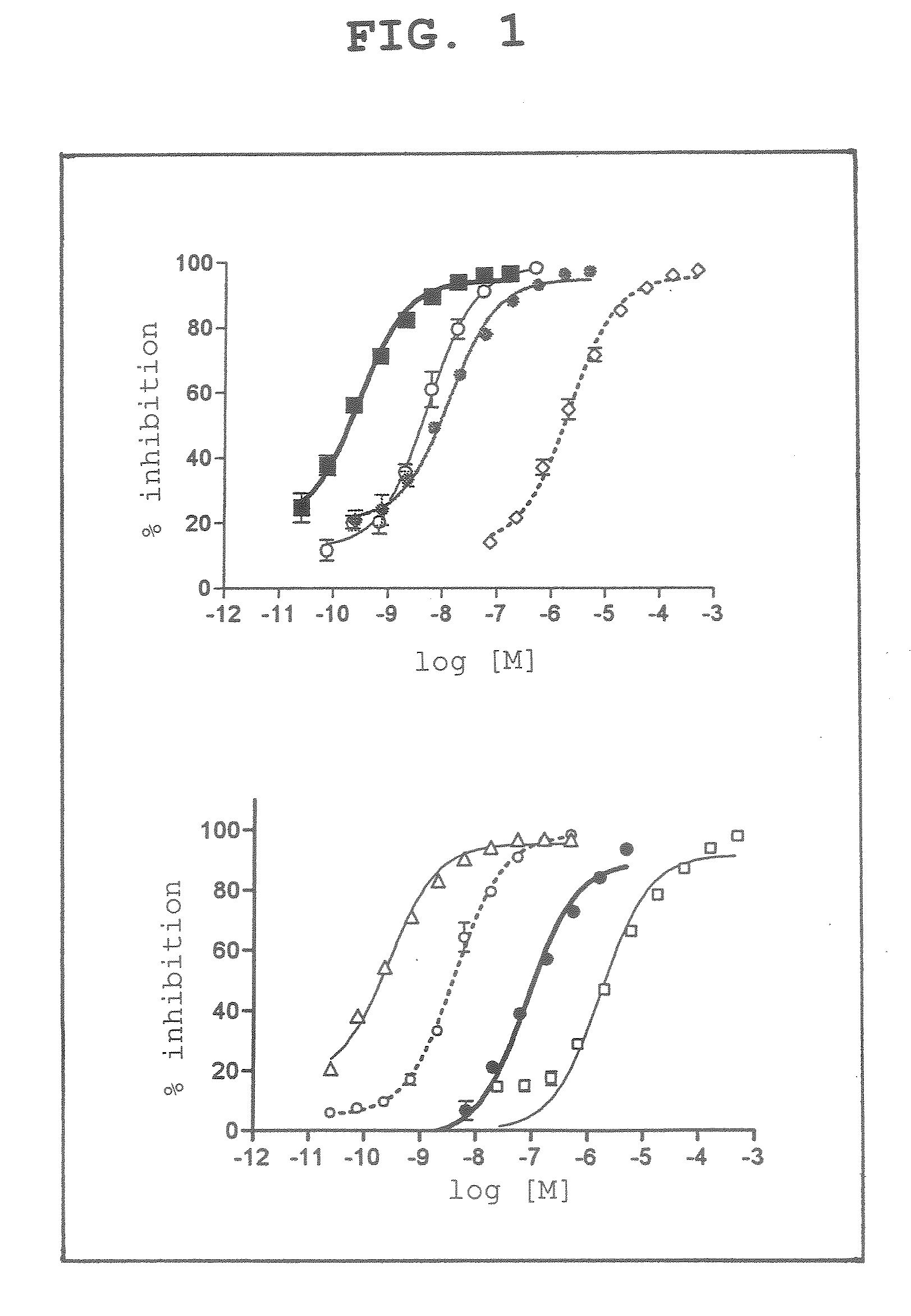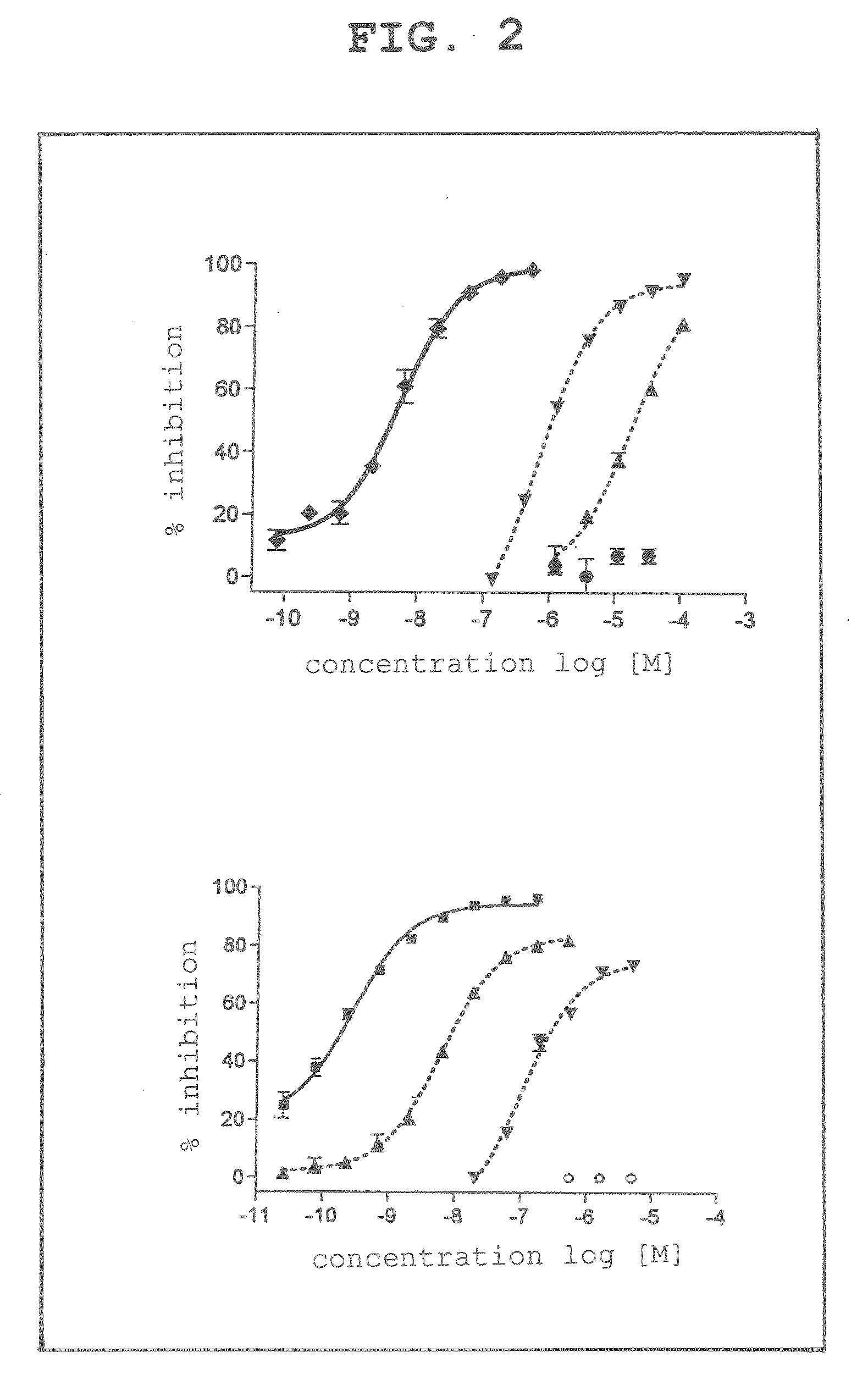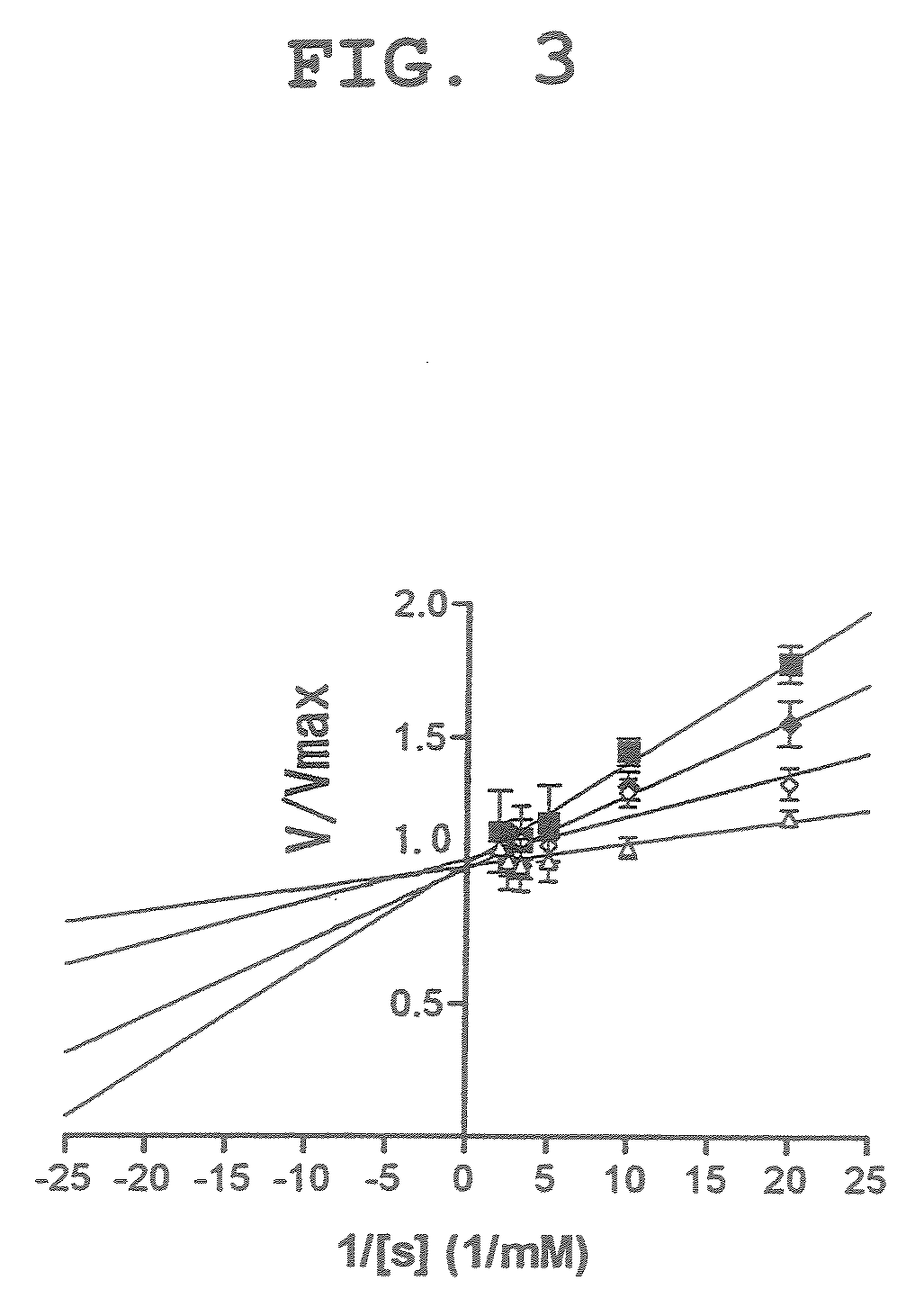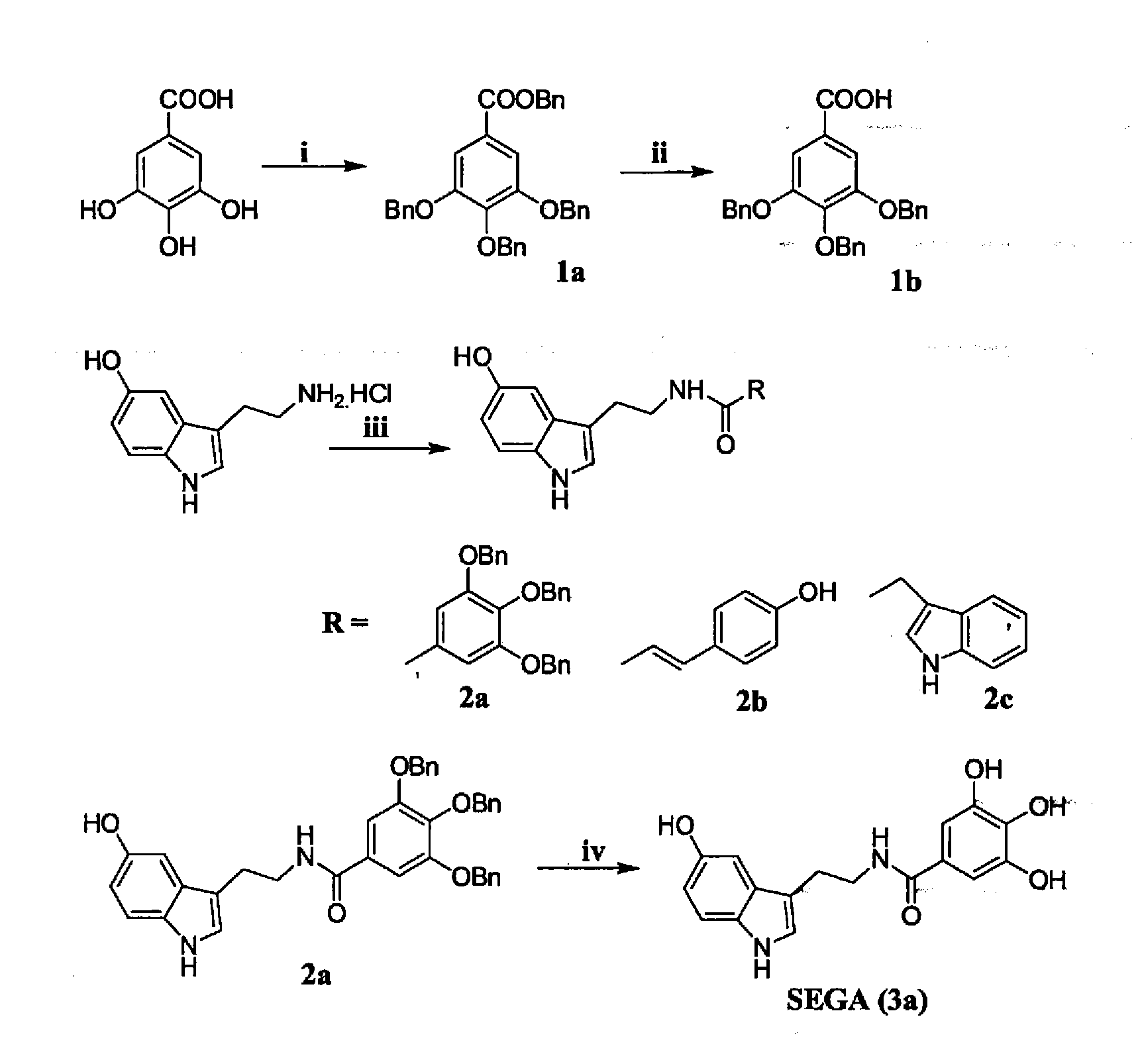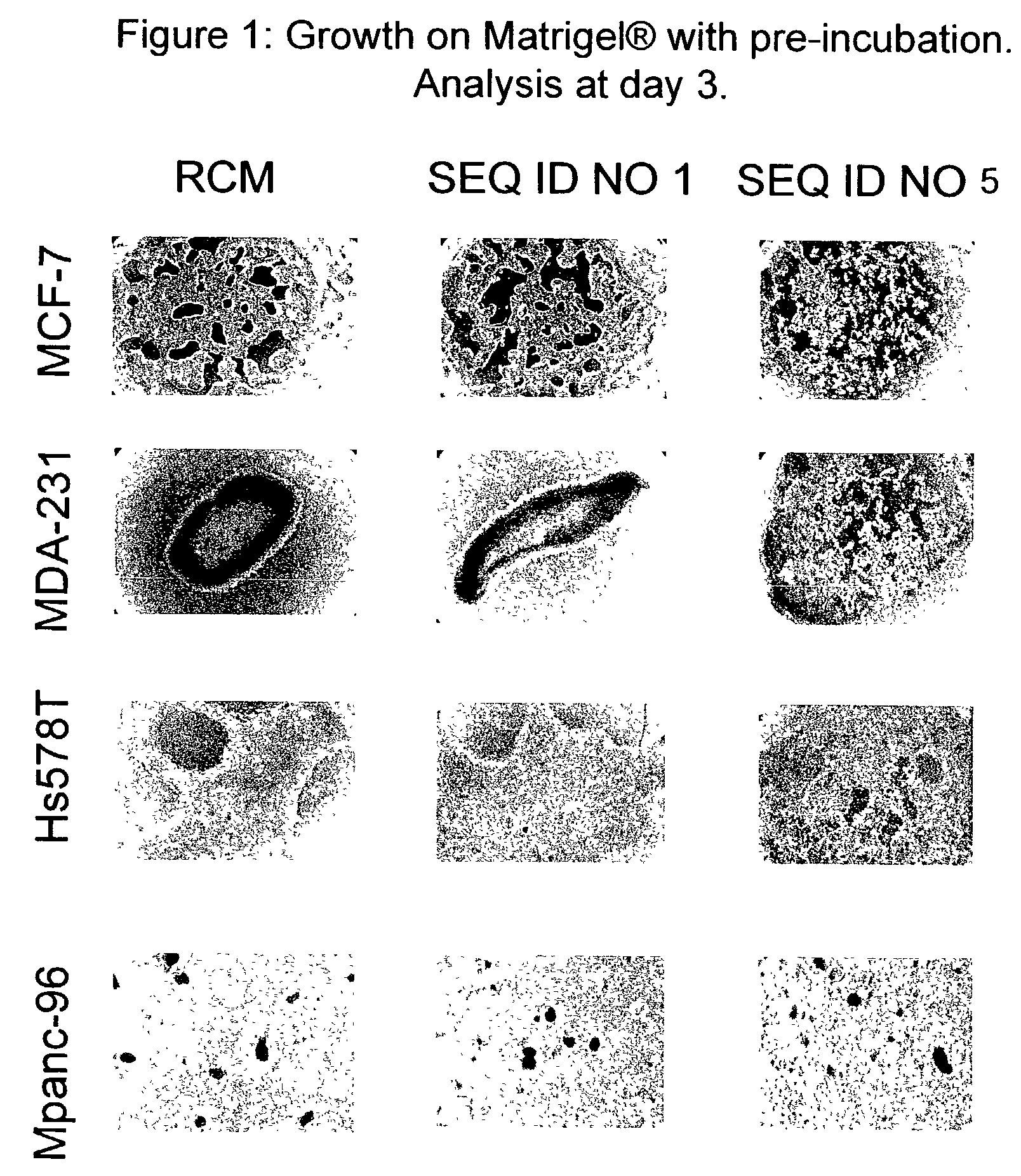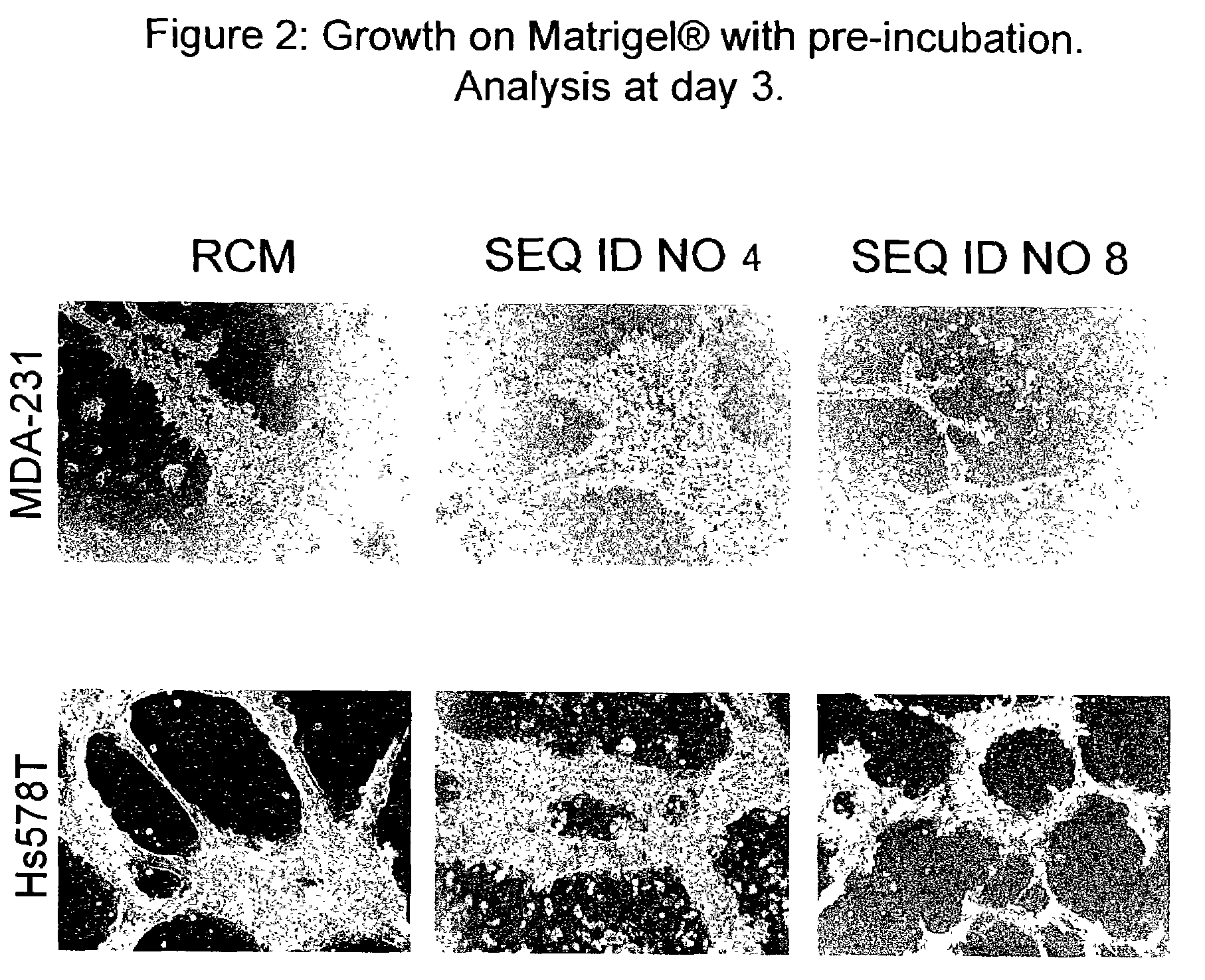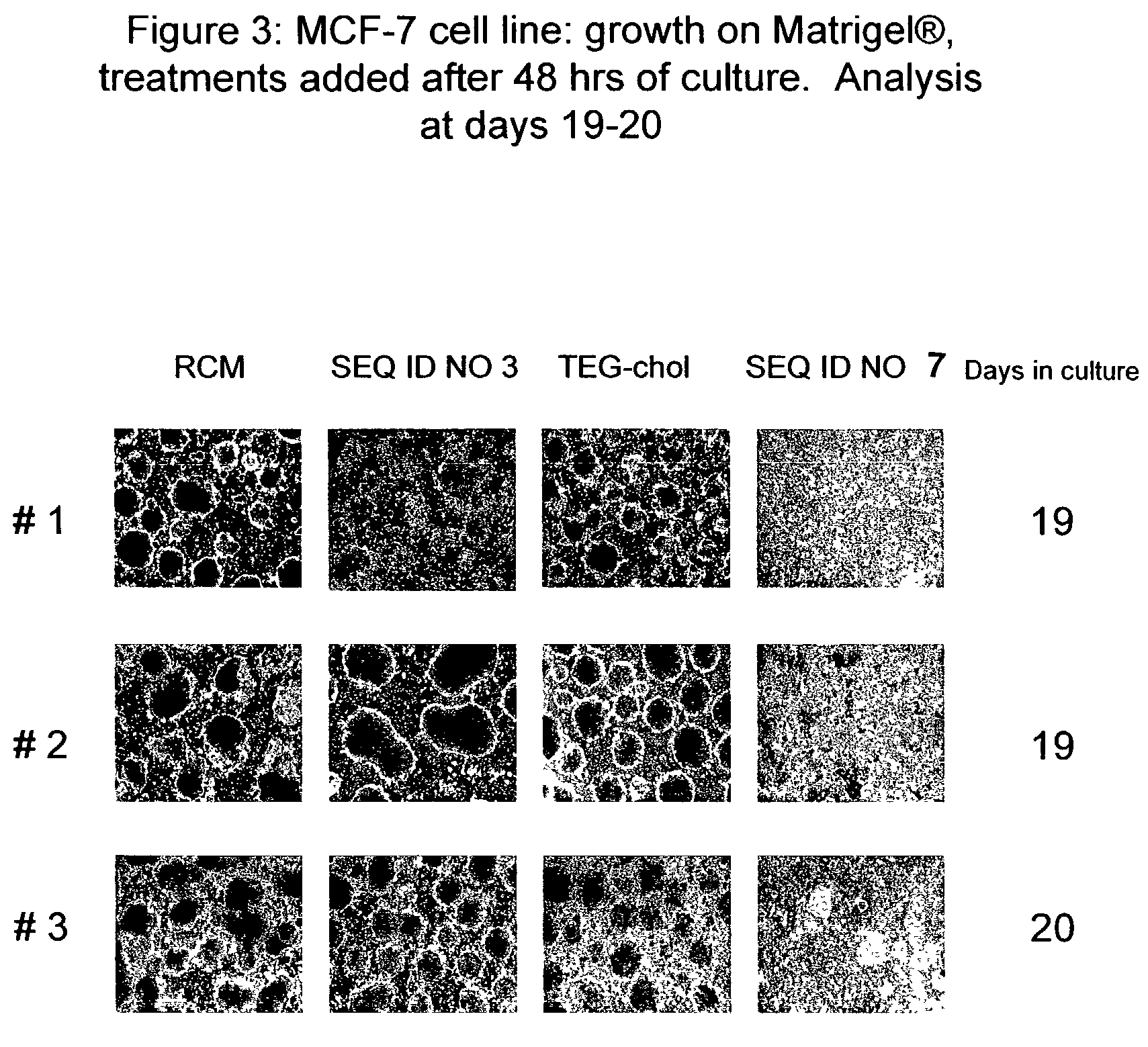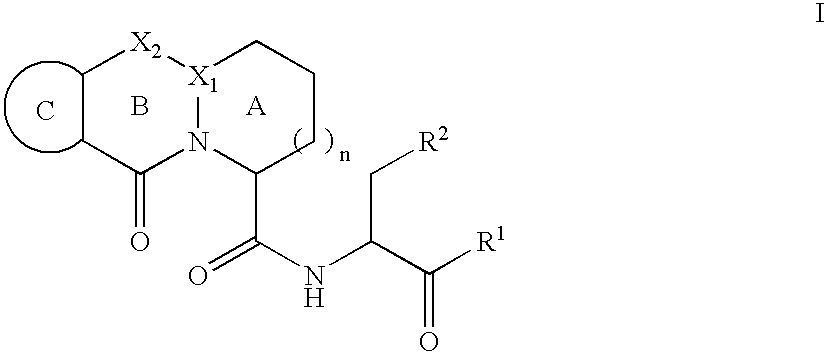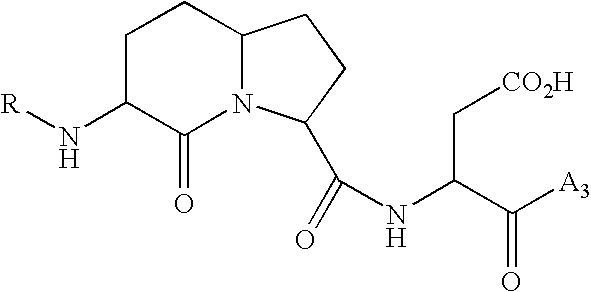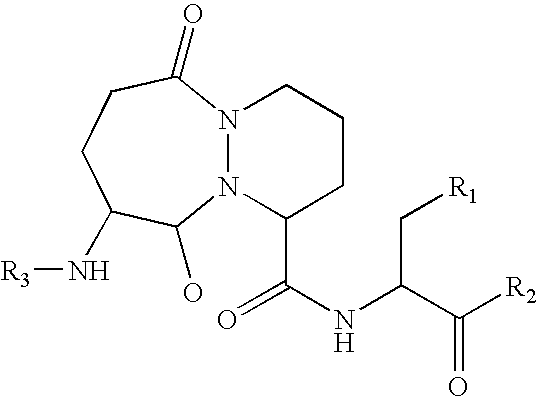Patents
Literature
Hiro is an intelligent assistant for R&D personnel, combined with Patent DNA, to facilitate innovative research.
53 results about "Paracaspase" patented technology
Efficacy Topic
Property
Owner
Technical Advancement
Application Domain
Technology Topic
Technology Field Word
Patent Country/Region
Patent Type
Patent Status
Application Year
Inventor
Paracaspases (human: MALT1) are members of the C14 family of cysteine proteases. Paracaspases are proteins related to caspases present in animals and slime mold, in contrast to metacaspases, which are present in plants, fungi, and "protists". The phylogenetic distribution is a bit confusing, since slime mold diverged earlier than the animal/fungal split.
Caspase-9 : BIR domain of XIAP complexes and methods of use
InactiveUS20040180828A1Avoid possibilityIncreased apoptosisPowder deliveryElectrotherapyApoptosisCaspase-9
The present invention provides polypeptides and specific binding agents that modify the activity of an initiator caspase involved in apoptosis, caspase-9. The polypeptides include the third baculoviral IAP repeat (BIR3) of an IAP and form a heterodimer complex with caspase-9. Nucleic acid molecules including expression vectors encoding the polypeptides and variants thereof as well as variants of caspase-9 are provided. Such polypeptide and nucleic acid molecules may be used for modifying apoptosis.
Owner:THE TRUSTEES FOR PRINCETON UNIV
Protease specific cleavable luciferases and methods of use thereof
Provided are methods and compositions useful in detecting protease activity in a sample, as well as methods of identifying agents that modulate protease activity. The methods and compositions provide a modified luciferase polynucleotide sequence and a luciferase polypeptide containing protease recognition sequences, wherein cleavage of the recognition sequence by a protease inhibits luciferase activity. Further provided are methods and compositions for detecting and modulating caspase activity and apoptosis.
Owner:MILLIPORE CORP
Selective apoptotic induction in cancer cells including activation of procaspase-3
Compounds and related methods for synthesis, and the use of compounds in therapy for the treatment of cancer and selective induction of apoptosis in cells are disclosed. Compounds are disclosed in connection with modification of procaspases such as procaspase-3, and particular embodiments are capable of direct activation of procaspase-3 and procaspase-7 to the effector forms of caspase-3 and caspase-7. Procaspase-3 levels can vary among cancer cell types; several types have relatively high levels and can have increased susceptibility to chemotherapy by compounds and methods herein. Therapeutic applications are relevant for a variety of cancer conditions and cell types, e.g. breast, lung, brain, colon, renal, adrenal, melanoma, and others.
Owner:THE BOARD OF TRUSTEES OF THE UNIV OF ILLINOIS
Substituted 4H-chromene and analogs as activators of caspases and inducers of apoptosis and the use thereof
InactiveUS6906203B1Treating preventing amelioratingOrganic chemistryAntipyreticInducerApoptosis inducer
The present invention is directed to substituted 4H-chromene and analogs thereof, represented by the general Formula I: wherein A, B, X, Y, Z and R5 are defined herein. The present invention also relates to the discovery that compounds having Formula I are activators of caspases and inducers of apoptosis. Therefore, the activators of caspases and inducers of apoptosis of this invention can be used to induce cell death in a variety of clinical conditions in which uncontrolled growth and spread of abnormal cells occurs.
Owner:CYTOVIA INC
Methods of treating a subject afflicted with an autoimmune disease using predictive biomarkers of clinical response to glatiramer acetate therapy in multiple sclerosis
Owner:TEVA PHARMA IND LTD
Acetamide derivative and application thereof in pharmacy
The invention provides an acetamide derivative with the structural formula as follows: R represents -X-Ar, -X-COOH, -CO-Ar, -SO2-Ar, -X-Het., or -X-NR1R2, wherein X represents alkylene with 1-8 carbon atoms and the alkylene is not substituted or is substituted by straight chain hydrocarbon or branched hydrocarbon with 1-5 carbon atoms; and Ar represents phenyl, pyridyl, naphthyl, pyrimidyl and quinolyl. The derivative can cause apoptosis by acting on Caspase-3 zymogen in cancer cells and can be widely applied in cancer treatment.
Owner:JIANGSU CAREFREE PHARM CO LTD
Visualization and quantitation of cellular cytotoxicity using cell-permeable fluorogenic protease substrates and caspase activity indicator markers
ActiveUS7927871B2Microbiological testing/measurementTetrapeptide ingredientsFluorescenceCytotoxicity
This invention provides a non-radioactive assay to monitor and quantify the target-cell killing activities mediated by cytotoxic T lymphocytes (CTLs). This assay is predicated on the discovery that apoptosis pathway activation and, in particular, granzyme B activity, provides a measure of cytotoxic effector cell activity. In one embodiment, measurement of CTL-induced granzyme B activation in target cells is achieved through detection of the specific cleavage of fluorogenic granzyme B substrates. This assay reliably detects antigen-specific CTL killing of target cells, and provides a more sensitive, more informative and safer alternative to the standard 51Cr-release assay most often used to quantify CTL responses. The assay can be used to study CTL-mediated killing of primary host target cells of different cell lineages, and enables the study of antigen-specific cellular immune responses in real time at the single-cell level. As such, the assay can provide a valuable tool for studies of infectious disease pathogenesis and development of new vaccines and immunotherapies.
Owner:ONCOIMMUNIN
N'-arylmethylene-2-(4-oxothiophene[2,3-d]pyrimidin-3-yl)acetyl hydrazone compounds, and preparation method and application thereof
InactiveCN102336768AThe synthesis method is simplePromote apoptosisOrganic active ingredientsOrganic chemistryWilms' tumorHuman breast
The invention discloses N'-arylmethylene-2-(4-oxothiophene[2,3-d]pyrimidin-3-yl)acetyl hydrazone compounds, and a preparation method and application thereof. The structural general formula of the compounds is shown as a formula (I). Experimental results indicate that the compounds can induce cells to which Caspase-3 in human cervical carcinoma cells, human lung carcinoma cells and human breast carcinoma cells is dependent to die so as to inhibit the propagation of the carcinoma cells, also have low toxicity on normal cells, and can be used for preparing antitumor medicines for treating cervical carcinoma, lung cancer or breast cancer.
Owner:SHANGHAI INST OF ORGANIC CHEM CHINESE ACAD OF SCI +1
Compositions and methods of treatment of drug resistant cancers
ActiveUS20140011759A1Synergize their apoptotic responseBiocideSugar derivativesAbnormal tissue growthPhosphorylation
Time-staggered inhibition of EGFR, in combination with DNA damaging agents, is a useful therapeutic strategy for treating cancers, particularly drug resistant cancers such as a subset of triple-negative tumors, particularly those with high basal levels of phosphorylated EGFR. The staggered therapy was also demonstrated to be applicable to other types of tumors, especially lung cancers, which contain either high levels of phosphorylated wild-type EGFR or mutations within EGFR itself. EGFR inhibition dramatically sensitizes cancer cells to DNA damage if the drugs are given sequentially, but not simultaneously. The first drug must be administered in a dosage and for a period of time sufficient for the dynamic network rewiring of an oncogenic signature maintained by active EGFR signaling to unmask an apoptotic process that involves activation of caspase-8.
Owner:MASSACHUSETTS INST OF TECH
Substituted indole-2-carboxylic acid benzylidene-hydrazides and analogs as activators of caspases and inducers of apoptosis and the use thereof
The present invention is directed to substituted indole-2-carboxylic acid benzylidene-hydrazides and analogs thereof, represented by the general Formula I: 1 wherein X, Ar.sub.1, R.sub.2-R.sub.6 and R.sub.12 are defined herein. The present invention also relates to the discovery that compounds having Formula I are activators of caspases and inducers of apoptosis. The compounds of this invention may be used to induce cell death in a variety of clinical conditions in which uncontrolled growth and spread of abnormal cells occurs.
Owner:CYTOVIA INC
Methods For Activating Caspase-14 Expression In Human Skin
A method for treating human skin comprising the steps of a) identifying a subject deficient in caspase-14; wherein the caspase-14 deficiency is identified by the presence of a skin condition selected from the group consisting of eczema, xerotic skin, and skin dryness in at least one skin zone of the subject; and b) activating caspase-14 in human skin by administering to a subject in need thereof a therapeutically effective amount of a composition comprising one or more extracts selected from the group consisting of litchi, glasswort, peach, soja seed, sweet basil, cucumber, chanterelle, leek, kiwi fruit, rhubarb, grapefruit, wheat, raspberry, plum, and mixtures thereof.
Owner:ELC MANAGEMENT LLC
Caspase-3 proenzyme protein immunohistochemical diagnosis kit and application
The invention discloses a procaspase-3 immunohistochemical diagnosis kit and a detection method thereof. The kit comprises an immunohistochemical staining agent, which comprises an initial antibody, a second antibody, enzyme, a substrate, a color-developing agent, a blocking agent and buffer solution, wherein the initial antibody is connected with tissue antigen; the second antibody is connected with the initial antibody; and the blocking agent is positioned at a non-specific binding site. The kit can measure expression level of the procaspase-3 antigen and cell position condition in the testee tissue accurately, provides guidance for clinical application of medicaments using the procaspase-3 protein as a target spot, and provides reference for clinical diagnosis of malignant tumor, hepatic fibrosis, renal injury and neurodegenerative lesion. The invention also discloses a control picture for detecting expression level of the procaspase-3 protein. The control picture is provided with a procaspase-3 high-expression control region, a procaspase-3 medium-expression control region, a procaspase-3 non-expression (low-expression) control region and a procaspase-3 detection region for placing the tissue to be detected. The control picture provides an accurate evaluation criterion for evaluation of the expression level of the procaspase-3.
Owner:SHENYANG PHARMA UNIVERSITY
Methods for selectively modulating survivin apoptosis pathways
The present invention, based on the discovery of a new biological phenomena, provides methods and compositions for use in identifying agents that modulate the phosphorylation of survivin, the interaction between survivin and p34cdc2-cyclin B1 kinase complex, and the interaction between survivin and caspase-9. Related methods and compositions can be used to modulate survivin regulated apoptosis.
Owner:YALE UNIV
Method For Cosmetically Treating Caspase-14 Deficiency
A method of cosmetic care comprising activating capsase-14 expression in skin deficient in caspase-14 expression by applying, on at least one skin zone in need thereof, an effective amount of a plant extract selected from the group consisting of litchi, glasswort, peach, soja seed, sweet basil, cucumber, chanterelle, leek, kiwi fruit, rhubarb, grapefruit, wheat, raspberry, plum, and mixtures thereof, to activate caspase-14 expression in said skin.
Owner:ELC MANAGEMENT LLC
Substituted 1-benzoyl-3-cyano-pyrrolo [1,2-a] quinolines and analogs as activators of caspases and inducers of apoptosis
The present invention is directed to substituted 1-benzoyl-3-cyano-pyrrolo[1,2-α]quinolines and analogs thereof, represented by the general Formula I:wherein R1–R8, L, Q, dash line and Ar are defined herein. The present invention also relates to the discovery that compounds having Formula I are activators of caspases and inducers of apoptosis. Therefore, the activators of caspases and inducers of apoptosis of this invention can be used to induce cell death in a variety of clinical conditions in which uncontrolled growth and spread of abnormal cells occurs.
Owner:CYTOVIA INC
Caspase-3 Substrate Comprising Imaging Agents
InactiveUS20080286201A1Fast imagingBig gapHydrolasesTetrapeptide ingredientsTherapy monitoringDisease
Owner:GUILBERT BENEDICTE +5
Caspase-8 binding protein, its preparation and use
InactiveUS7354736B2Inhibiting and increasing effectStrong cytotoxicityOrganic active ingredientsSenses disorderProtein CParacaspase
The present invention relates to a caspase-8 interacting polypeptide (Cari), methods for its preparation, and its use.
Owner:YEDA RES & DEV CO LTD
3-Aryl-6-aryl-7H-[1,2,4]triazolo[3,4-b][1,3,4]thiadiazines and analogs as activators of caspases and inducers of apoptosis and the use thereof
Disclosed are 3-aryl-6-aryl-7H-[1,2,4]triazolo[3,4-b][1,3,4]thiadiazines and analogs thereof, represented by the Formula I: wherein Ar1, Q2, R1, R2, dashed line and X are defined herein. The present invention relates to the discovery that compounds having Formula I are activators of caspases and inducers of apoptosis. Therefore, the activators of caspases and inducers of apoptosis of this invention may be used to induce cell death in a variety of clinical conditions in which uncontrolled growth and spread of abnormal cells occurs.
Owner:CYTOVIA INC
Methods for identifying compounds that modulate stabilization of secretase-associated proteins
InactiveUS7326540B2Increased caspase activationMicrobiological testing/measurementDisease diagnosisBiochemistryDisease cause
Owner:THE GENERAL HOSPITAL CORP
Protein highly producing recombinant animal cell, method for preparing the same, and method for mass-producing protein using the same
InactiveUS7829306B2Improve survivabilityImprove viabilityAnimal cellsGenetically modified cellsBiotechnologyApoptosis
A gene encoding a production amount-potentiating factor is introduced into an animal cell to transform the cell. Alternatively, a protein production gene and the gene encoding the production amount-potentiating factor are introduced into the animal cell to transform the cell. Herein, as the production amount potentiating factor, there is used a factor having caspase activity inhibiting activity and / or protein biosynthesis activity potentiating action, for example, baculovirus P35. Further, the animal cell is cultured by a culturing method under a condition that apoptosis is not induced, so that a protein is mass-produced.
Owner:JURIDICAL FOUND THE CHEMO SERO THERAPEUTIC RES INST
Compositions and Uses of Amooranin Compounds
InactiveUS20090203634A1Good anticancer effectReduce multidrug resistanceBiocidePeptide/protein ingredientsDiseaseAbnormal tissue growth
Amooranin (AMR) has been found to cause tumor cell death through G2 / M cell cycle arrest, caspase activation, and apoptosis. Furthermore, it has been demonstrated that AMR is a substrate for P-glycoprotein. Based on these activities, AMR compounds, including AMR analogs, can be used in the treatment of a number of diseases in which aberrant cellular proliferation occurs such as drug-sensitive and drug-resistant cancers, autoimmune disorders, and inflammatory diseases.
Owner:VARIETY CHILDRENS HOSPITAL MIAMI CHILDRENS HOSPITAL
Methods and compositions for use in the diagnosis and treatment of chronic immune disease
InactiveUS20050009202A1Enhancing RNase L homodimer activityAvoid splittingMicrobiological testing/measurementBiological material analysisDiseaseImmunological diseases
Methods and compositions are provided for use in the diagnosis and treatment of a host suffering from a chronic immune disease. In the diagnostic methods of the subject invention, a host derived sample, typically PBMC or a derivative thereof, is assayed for the presence of low molecular weight fragments of RNase L, typically in conjunction with an evaluation of caspase activity. The results of this assay are then employed to diagnose and / or characterize a chronic immune disease in the host. In the treatment methods of the subject invention, an effective amount of agent capable of enhancing RNase L homodimer activity in the host, e.g., in host PBMC, is administered to the host. Also provided are methods for identifying agents having RNase L cleavage-inhibitory activity or RNase L fragment antagonist activity.
Owner:R E D LAB
Caspase inhibitors, especially caspase 3 inhibitors, for the treatment of influenza
The invention relates to the use of at least one caspase inhibitor, in particular a caspase-3 inhibitor, for preparing a pharmaceutical composition for the prophylaxis or therapy of a viral infection, in particular an infection with an RNA negative-strand virus, preferably an influenza infection, and to a test system for identifying suitable active substances.
Owner:ACTIVAERO
Methods for activating caspase-14 expression in human skin
One or more extracts selected from the group consisting of litchi, glasswort, peach, soja seed, sweet basil, cucumber, chanterelle, leek, kiwi fruit, rhubarb, grapefruit, wheat, raspberry, plum, and mixtures thereof, in a dermatologically acceptable carrier for use in topically treating caspase-14 deficiency in human skin.
Owner:ELC MANAGEMENT LLC
Isatin derivatives for use as in vivo imaging agents
InactiveCN102171208AHigh affinityHigh metabolic stabilityOrganic active ingredientsNervous disorderDiseaseMolecular imaging
The present invention provides isatin 5-sulfonamide derivatives, pharmaceutical compositions comprising said derivatives, their use as molecular imaging agents, their use for the diagnosis or treatment of diseases or disorders associated with dysregulation of apoptosis, methods for synthesizing said derivatives, methods for the molecular imaging of caspase activity and apoptosis, and methods of assessing the therapeutic effect of a test substance on caspase activity.
Owner:IMPERIAL INNOVATIONS LTD +1
Use of caspase 3 activity and its inhibitors
InactiveUS20150190456A1Reducing cancer recurrenceReduced likelihoodBiocideSulfur/selenium/tellurium active ingredientsOncologyCancer treatment
The present invention provides methods for using the level of caspase 3 activity for determining or prognosticating likelihood of cancer recurrence or relapse in a patient after the treatment for cancer. The present invention also provides methods for treating cancer in a patient using a caspase 3 inhibitor in conjunction with a conventional cancer treatment.
Owner:UNIV OF COLORADO THE REGENTS OF
Caspase inhibitor
InactiveUS20090149436A1Inhibit caspase activityOrganic active ingredientsBiocideCaspase inhibitorsDisease
The present invention provides a caspase inhibitor containing a cobalt porphyrin complex compound or cobalt choline complex compound as an active ingredient. The caspase inhibitor of the present invention can strongly and specifically inhibit the caspase activity. In addition, the caspase inhibitor / cobalt porphyrin complex compound or cobalt choline complex compound of the present invention is useful as a pharmaceutical agent for the prophylaxis or treatment of various diseases relating to apoptosis.
Owner:ASTELLAS PHARMA INC
Tryptamine derivatives, their preparation and their use in gastropathy
ActiveUS20130197052A1Increase absorbanceImprove suppression propertiesBiocideOrganic active ingredientsScavengerIMP dehydrogenase activity
The synthesis and evaluation of gastroprotective effect of different tryptamine derivatives. Tryptamine derivatives have been synthesized by formation of amide or ester with some known anti oxidant molecules. These derivatives show excellent antioxidant property in vitro. Among all the derivatives the compound SEGA (3a), that was prepared by the combination of serotonin with gallic acid shows the greater antioxidant property than the other synthesized compounds both in vivo and in vitro. SEGA(3a) shows the gastroprotective effect against NSAIDs (indomethacin or diclofenac)-induced gastropathy in dose dependent manner and also accelerates the healing from injury. It prevents the NSAIDs-induced mitochondrial oxidative stress in vivo. This derivative prevents NSAID-induced mitochondrial oxidative stress-mediated apoptosis in vivo by preventing the activation of caspase 9 and caspase-3 and restores NSAIDs-mediated collapse of mitochondroial transmembrane potential and dehydrogenase activity. SEGA (3a) plays an important role as an iron chelator as well as intra mitochondrial ROS scavenger. Thus, SEGA (3a) is a potent antioxidant antiapototic molecule, which efficiently prevents NSAID-induced gastropathy and stress or alcohol-mediated gastric damage.
Owner:COUNCIL OF SCI & IND RES +1
Therapeutically useful triethyleneglycol cholesteryl oligonucleotides
InactiveUS7635686B2Eliminate side effectsOrganic active ingredientsBiocideDiseaseCell-Extracellular Matrix
The present invention provides a composition comprising a 5′-OH, 3′-TEG cholesteryl synthetic sequence wherein the sequence is SEQ ID NO:5, SEQ ID NO:6, SEQ ID NO:7, SEQ ID NO:8. The present invention provides methods of using this composition for induction of response in a cell, including but not limited to inhibition of cellular proliferation, induction of cell cycle arrest, induction of caspase activation, cleavage of poly(ADP-ribose) polymerase, induction of apoptosis or modulation of extracellular matrix-cell interactions, or combinations thereof, in cancer cells or synovial cells, and methods of using this composition for treating disease.
Owner:BIONICHE LIFE SCI
Capase inhibitors and uses thereof
Owner:VERTEX PHARMA INC
Features
- R&D
- Intellectual Property
- Life Sciences
- Materials
- Tech Scout
Why Patsnap Eureka
- Unparalleled Data Quality
- Higher Quality Content
- 60% Fewer Hallucinations
Social media
Patsnap Eureka Blog
Learn More Browse by: Latest US Patents, China's latest patents, Technical Efficacy Thesaurus, Application Domain, Technology Topic, Popular Technical Reports.
© 2025 PatSnap. All rights reserved.Legal|Privacy policy|Modern Slavery Act Transparency Statement|Sitemap|About US| Contact US: help@patsnap.com
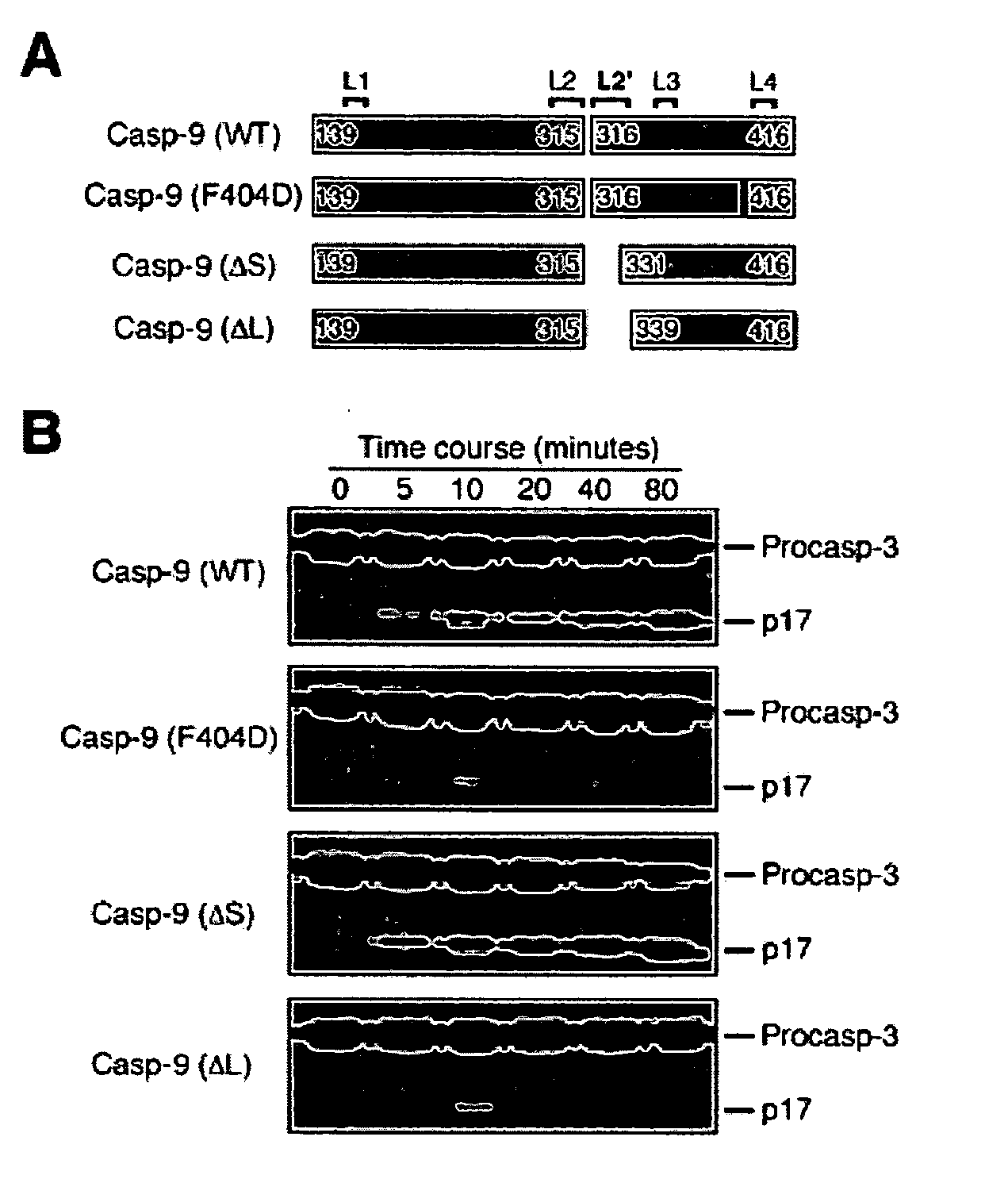
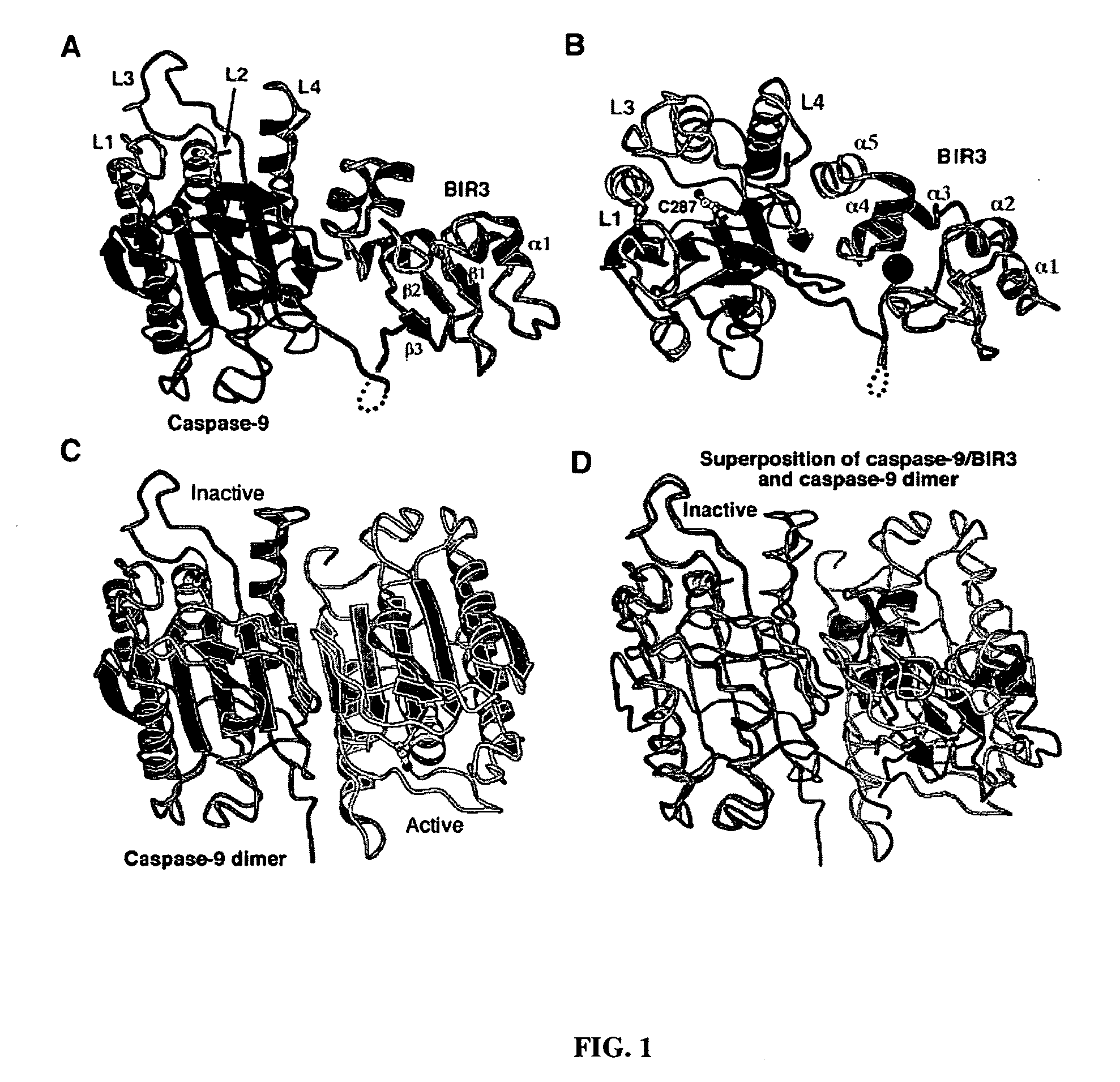
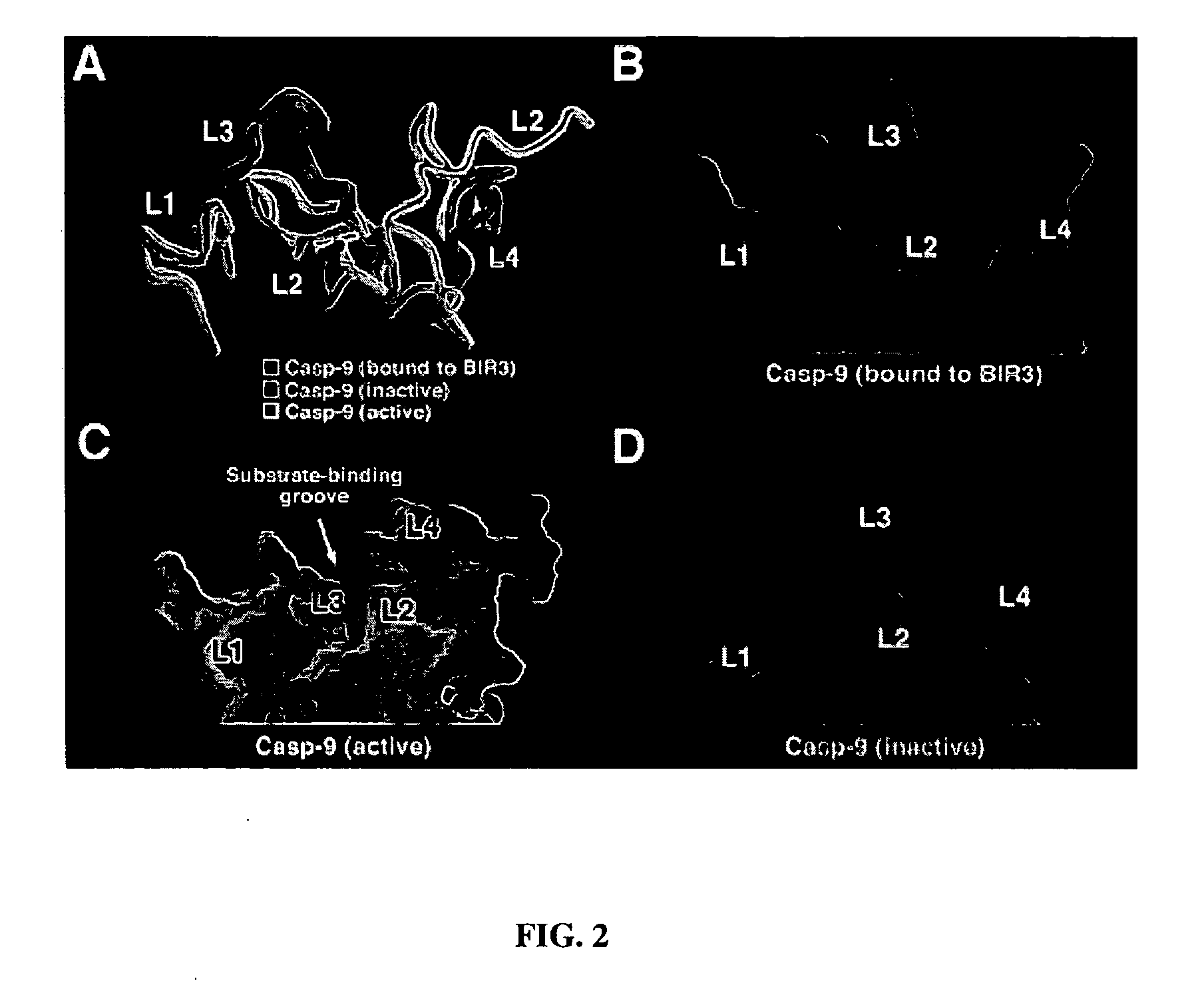
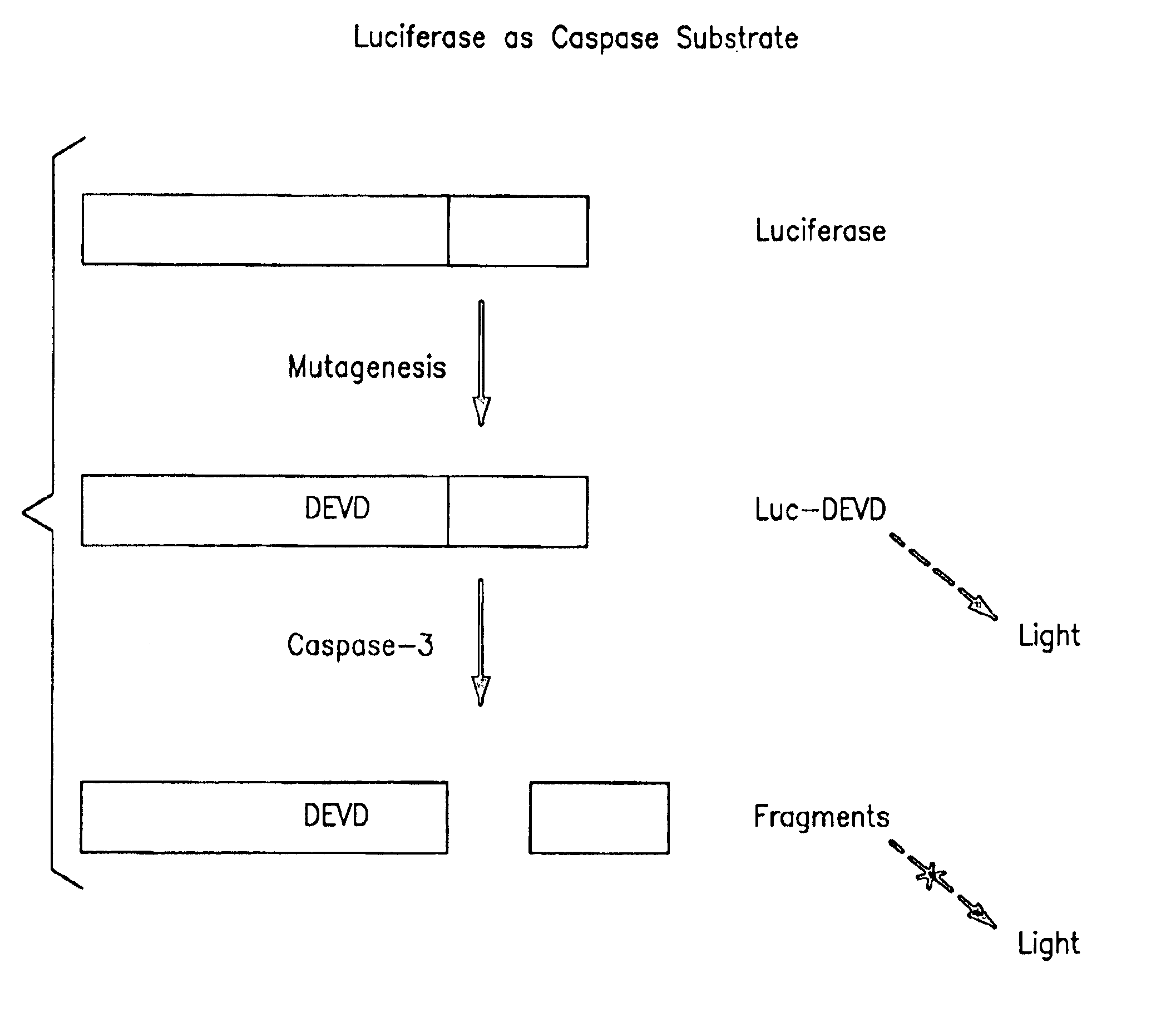
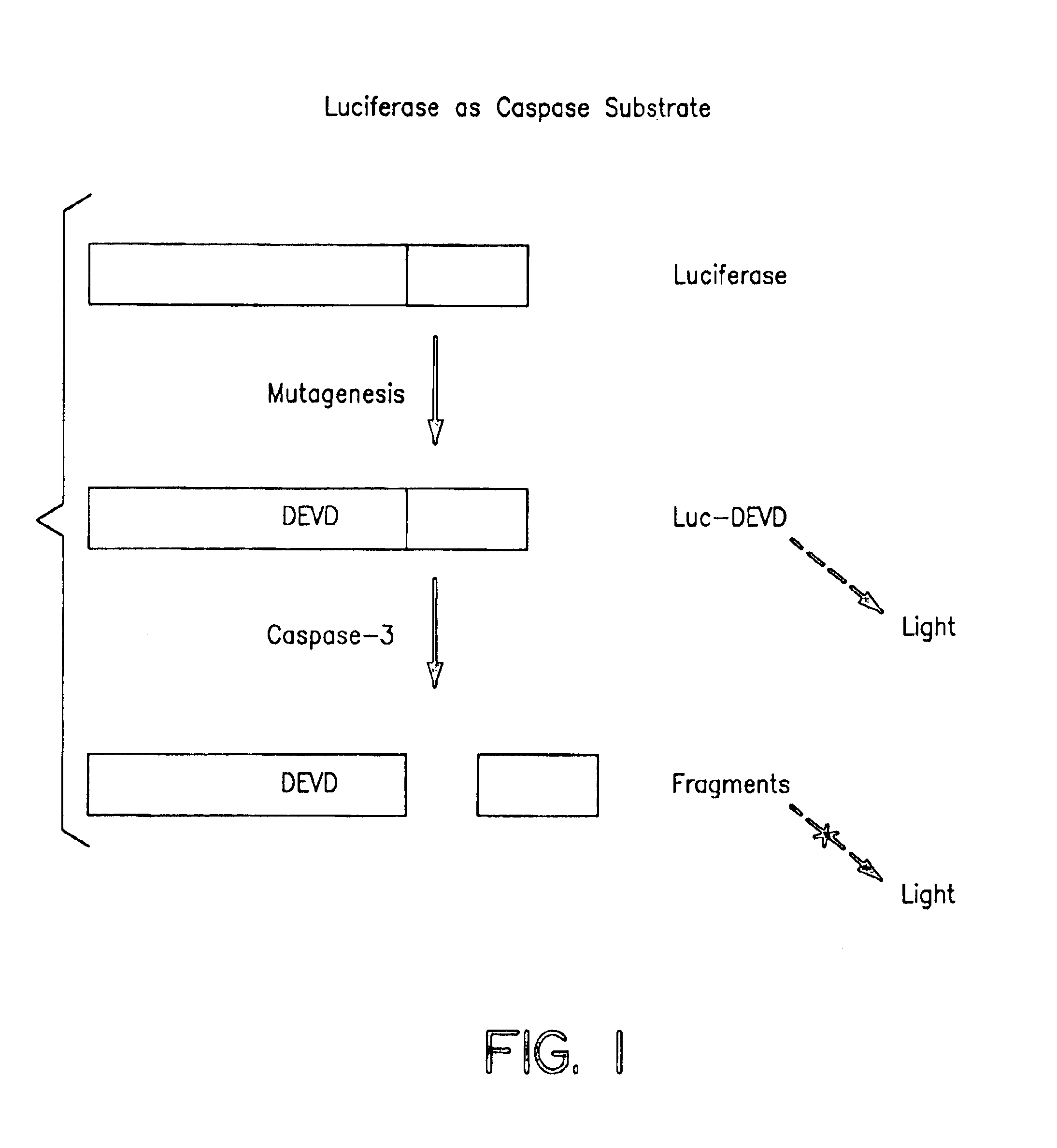



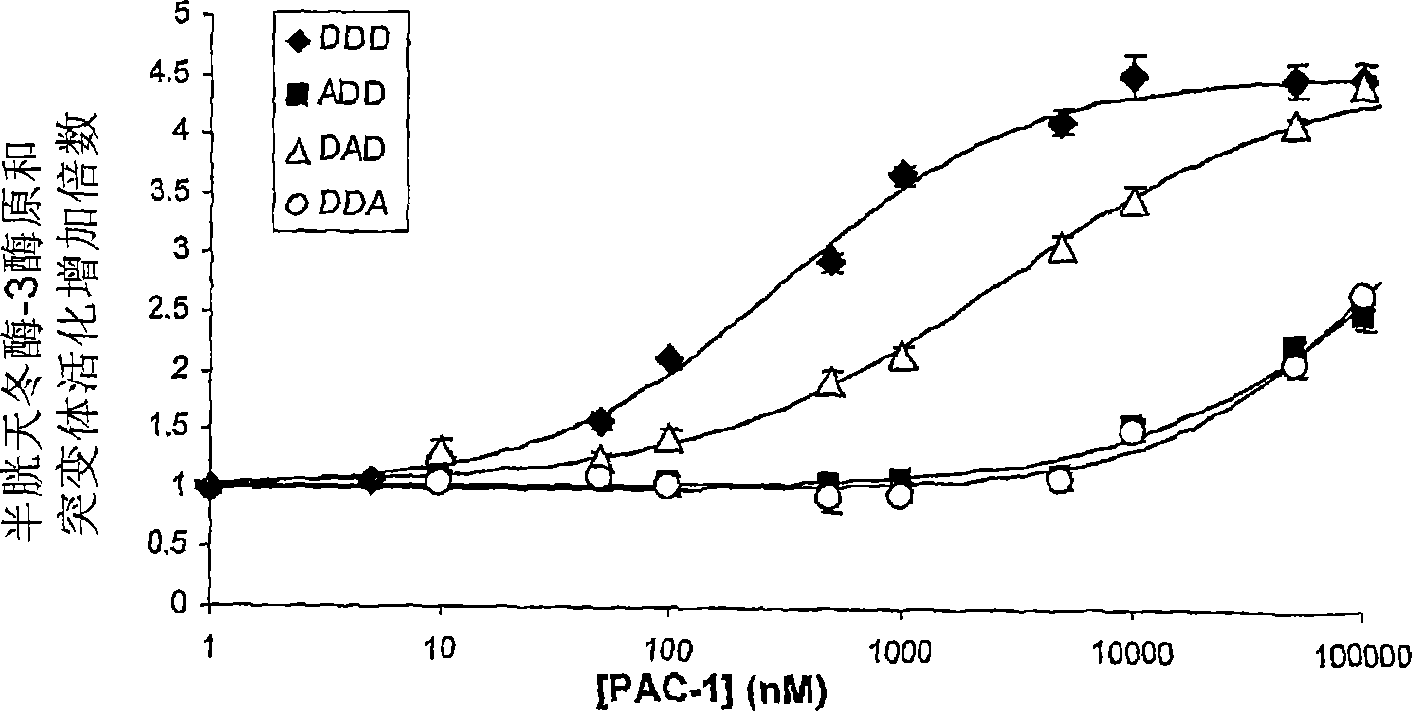
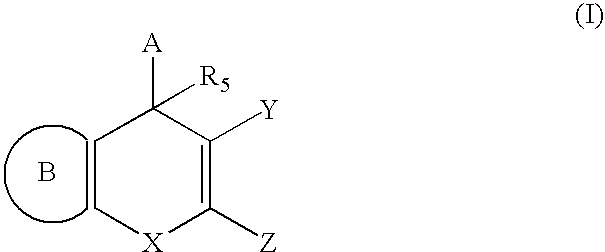
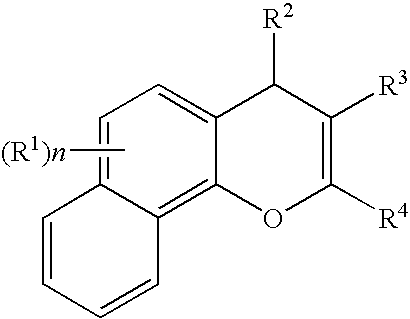
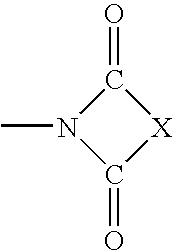
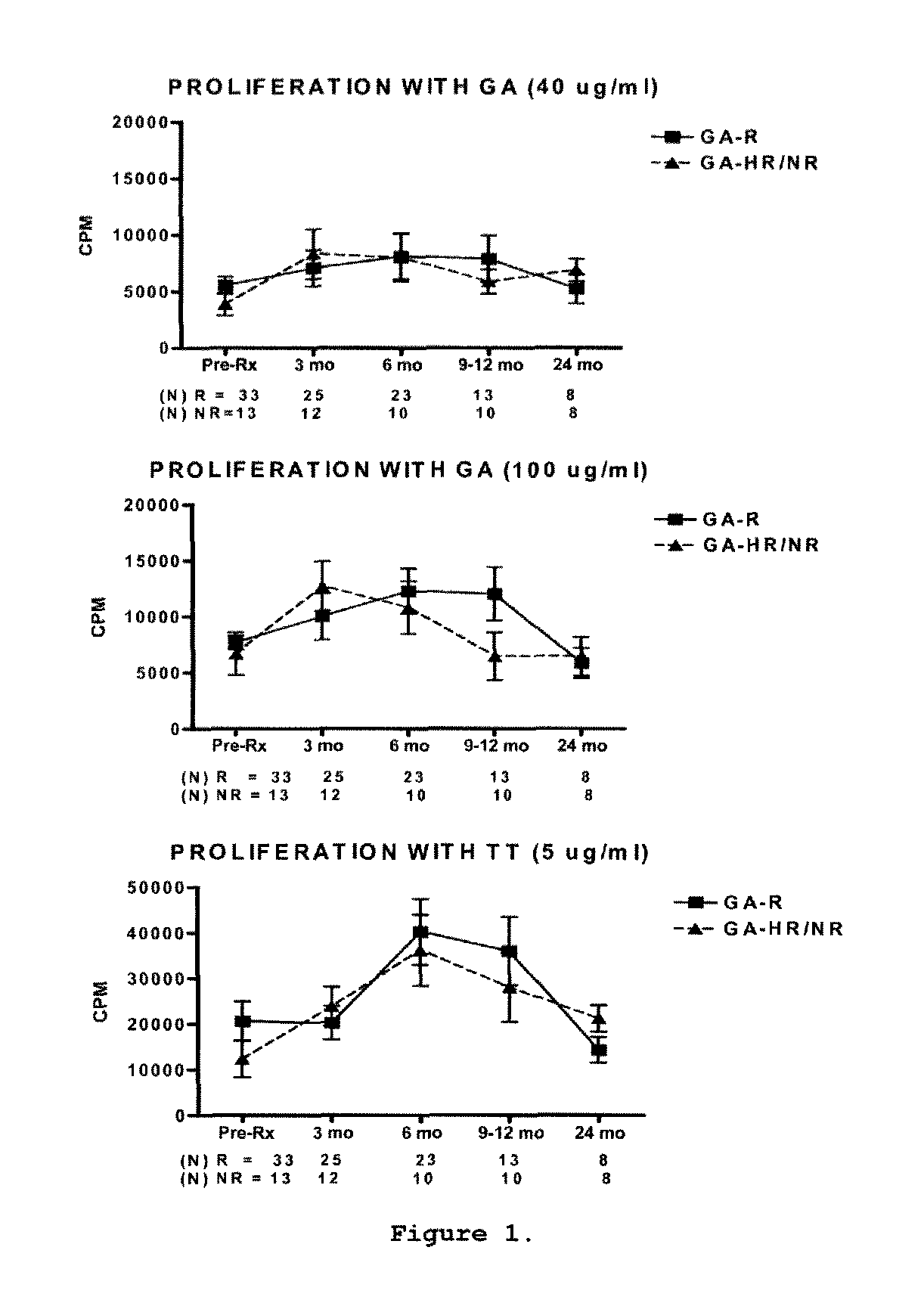
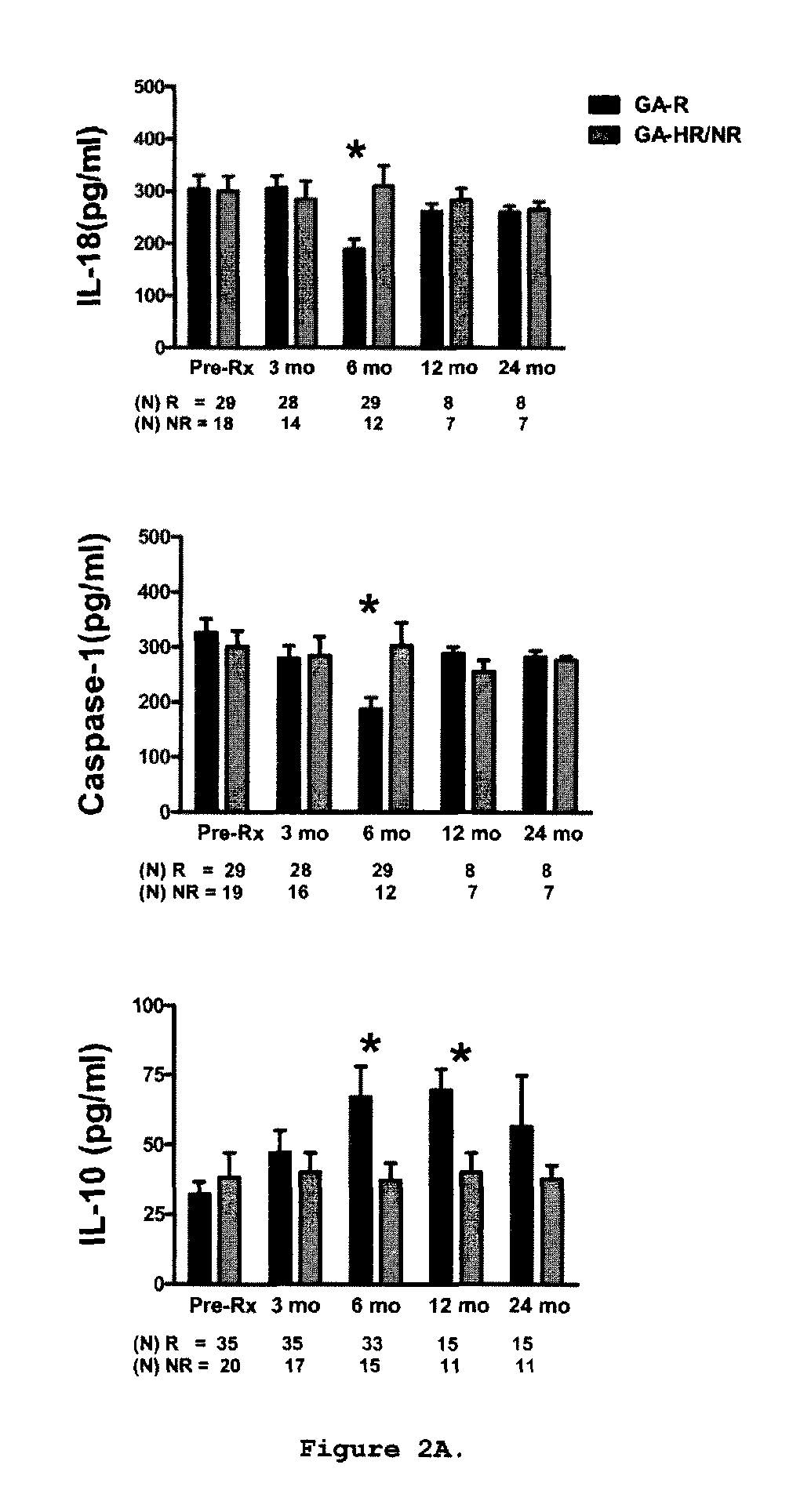
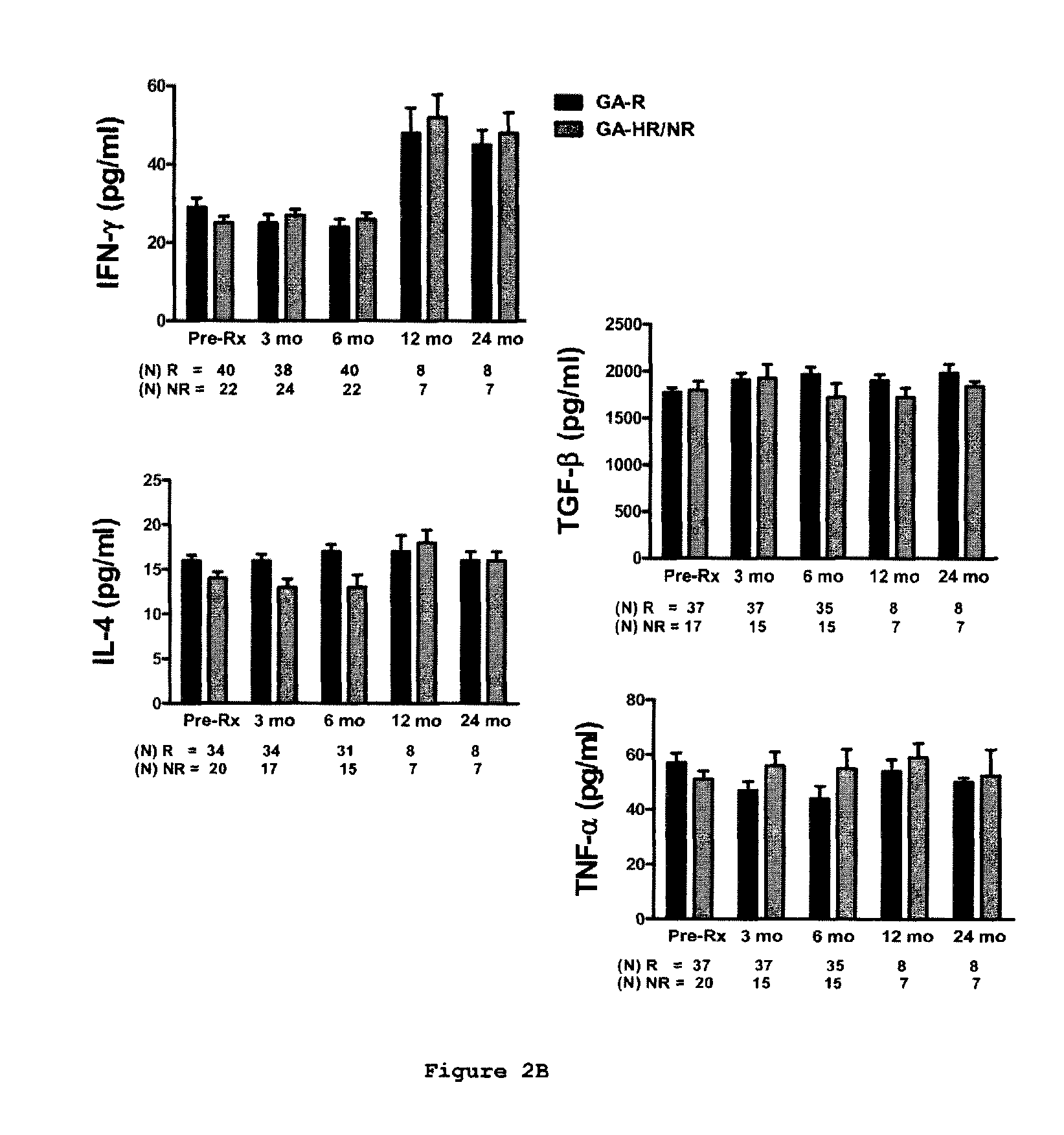



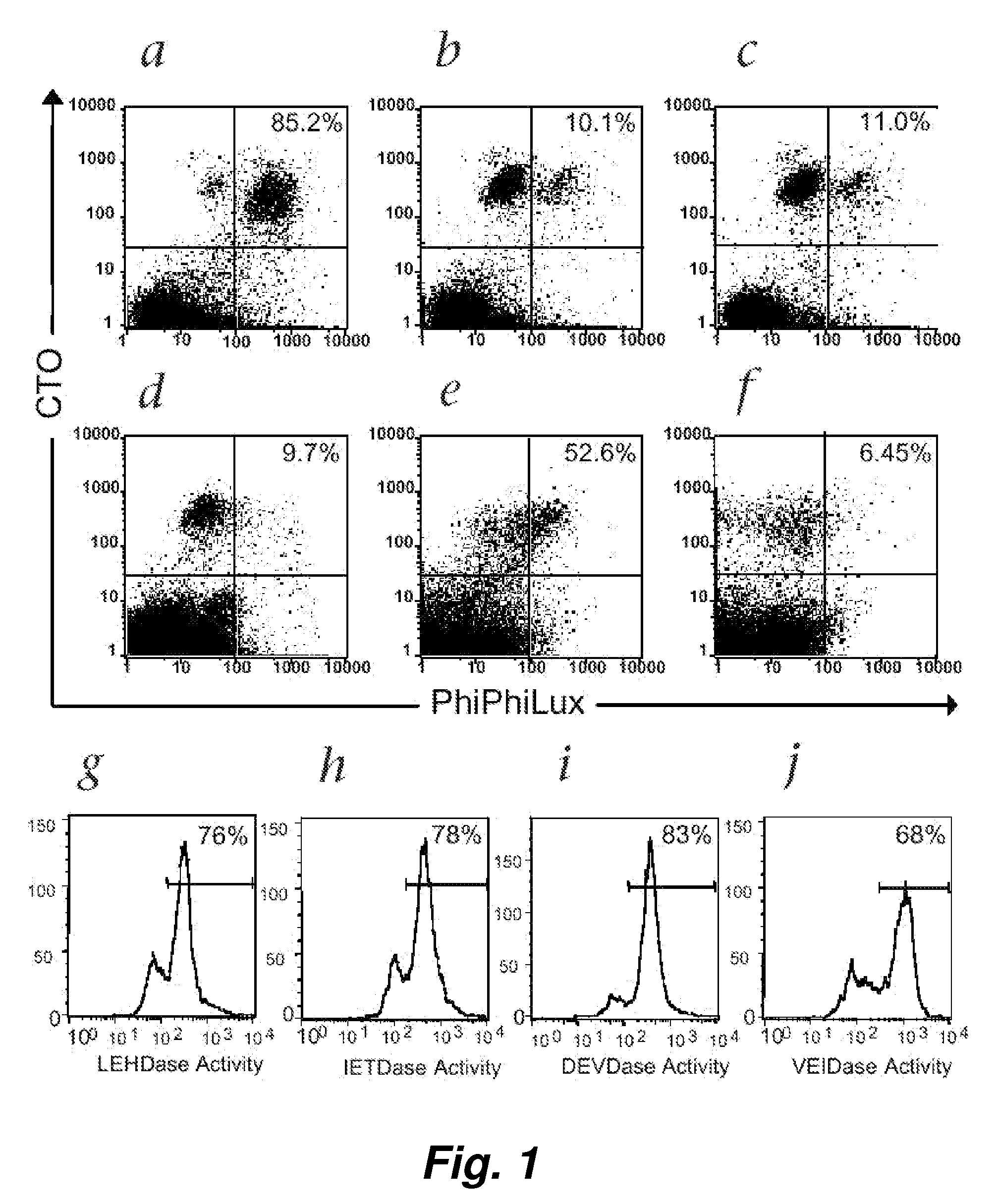
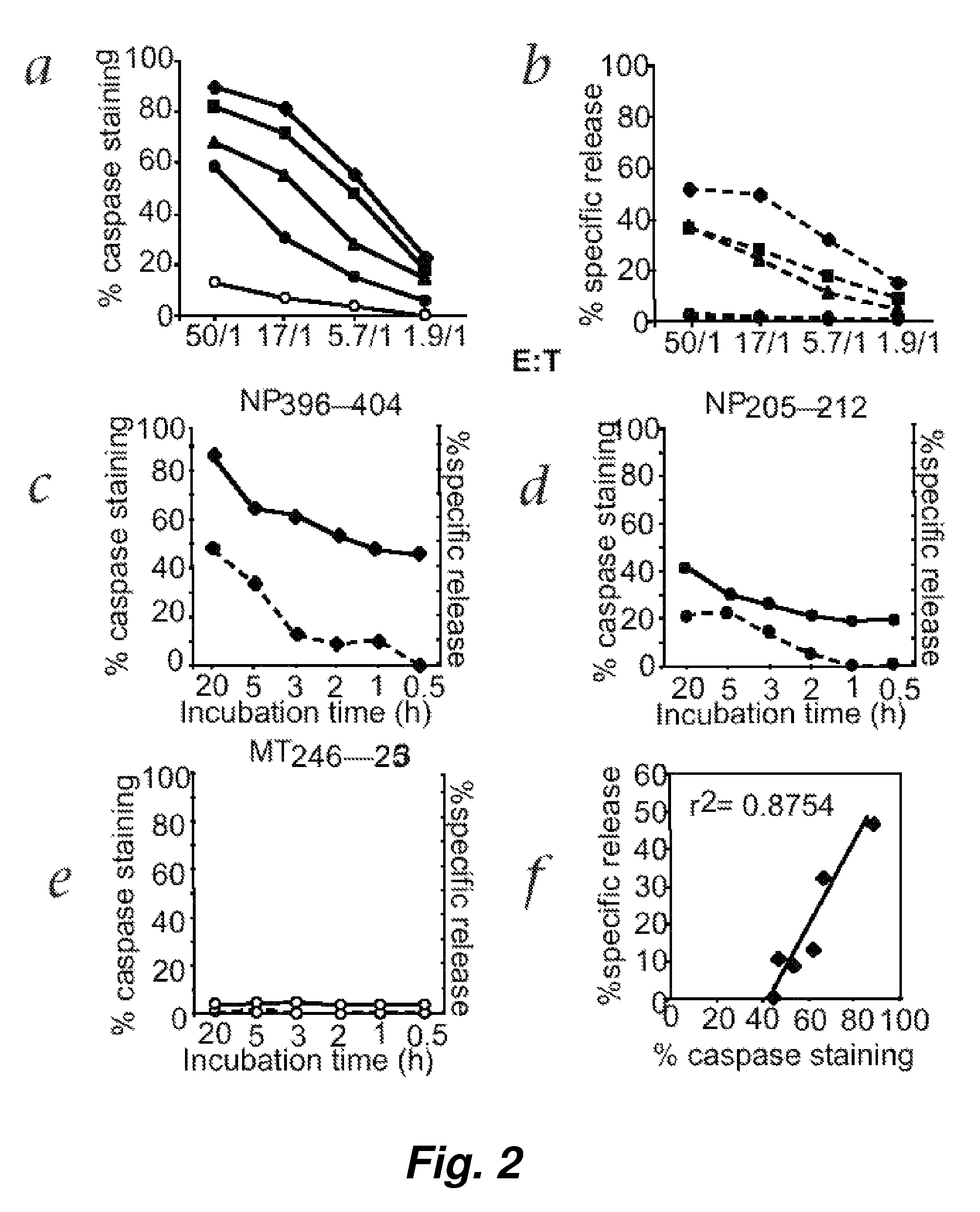
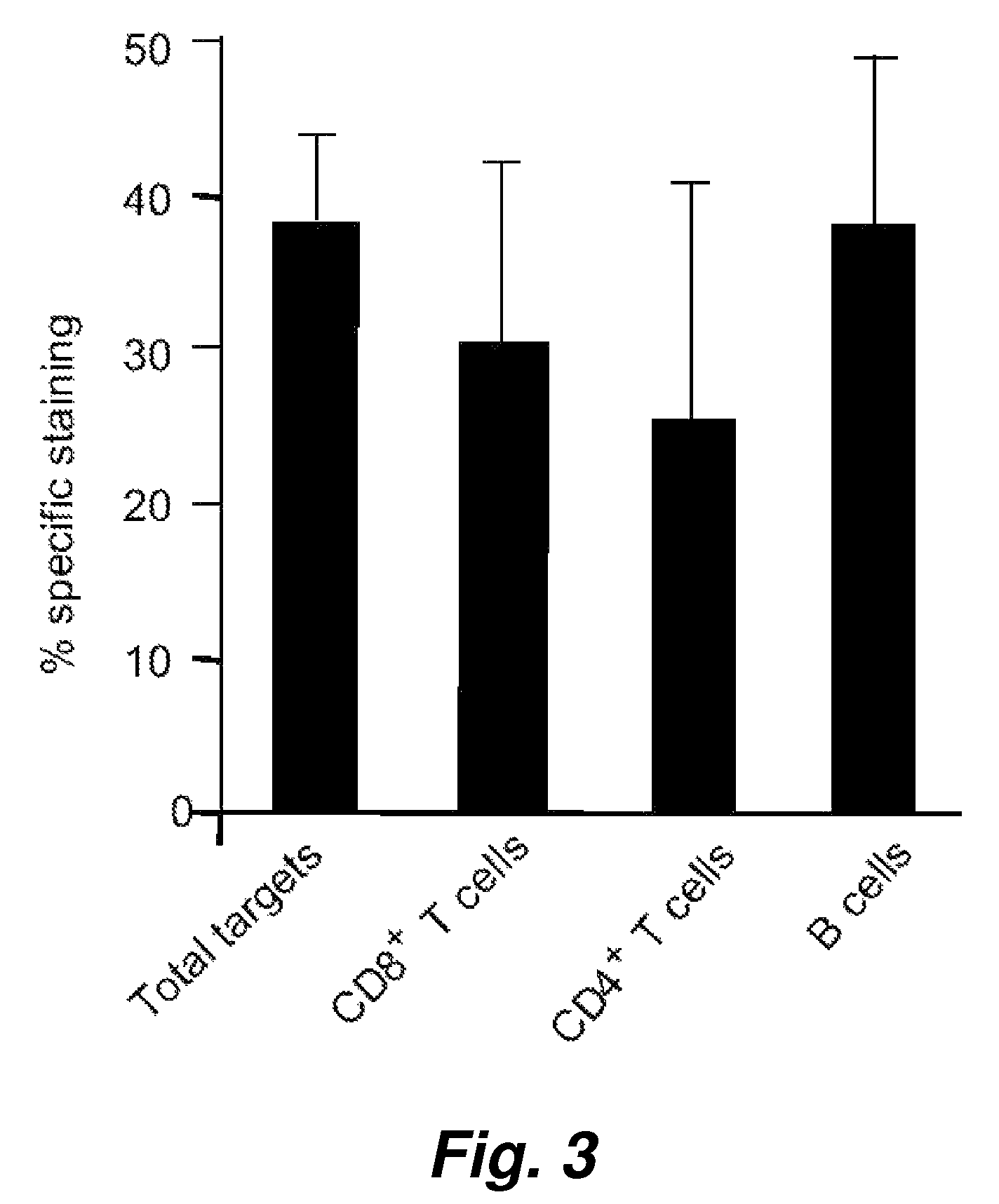
![N'-arylmethylene-2-(4-oxothiophene[2,3-d]pyrimidin-3-yl)acetyl hydrazone compounds, and preparation method and application thereof N'-arylmethylene-2-(4-oxothiophene[2,3-d]pyrimidin-3-yl)acetyl hydrazone compounds, and preparation method and application thereof](https://images-eureka-patsnap-com.libproxy1.nus.edu.sg/patent_img/16f88293-0e76-47d6-8d26-7849bd2f3bcc/HDA0000101530450000011.png)
![N'-arylmethylene-2-(4-oxothiophene[2,3-d]pyrimidin-3-yl)acetyl hydrazone compounds, and preparation method and application thereof N'-arylmethylene-2-(4-oxothiophene[2,3-d]pyrimidin-3-yl)acetyl hydrazone compounds, and preparation method and application thereof](https://images-eureka-patsnap-com.libproxy1.nus.edu.sg/patent_img/16f88293-0e76-47d6-8d26-7849bd2f3bcc/HDA0000101530450000012.png)
![N'-arylmethylene-2-(4-oxothiophene[2,3-d]pyrimidin-3-yl)acetyl hydrazone compounds, and preparation method and application thereof N'-arylmethylene-2-(4-oxothiophene[2,3-d]pyrimidin-3-yl)acetyl hydrazone compounds, and preparation method and application thereof](https://images-eureka-patsnap-com.libproxy1.nus.edu.sg/patent_img/16f88293-0e76-47d6-8d26-7849bd2f3bcc/FDA0000101530430000011.png)
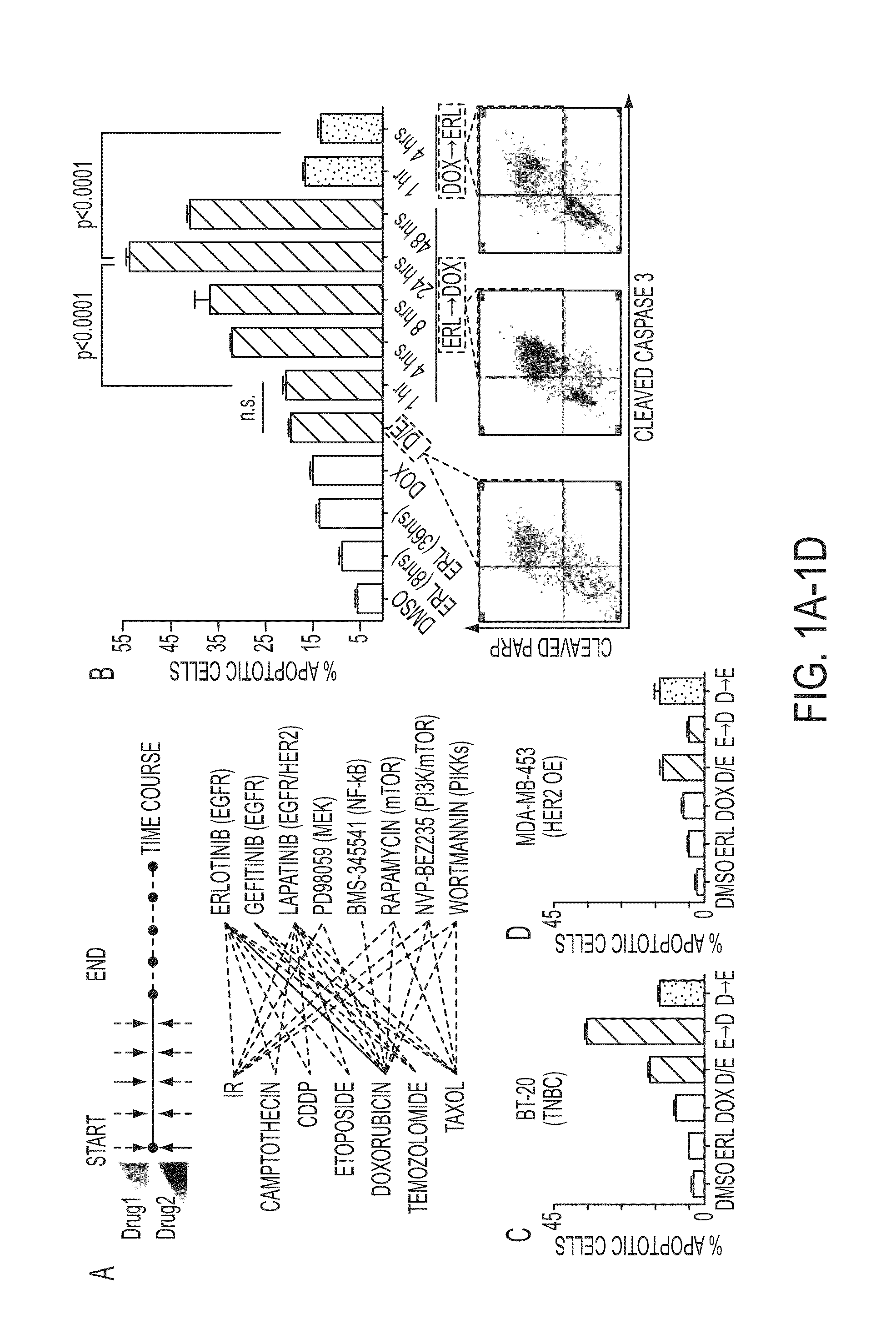

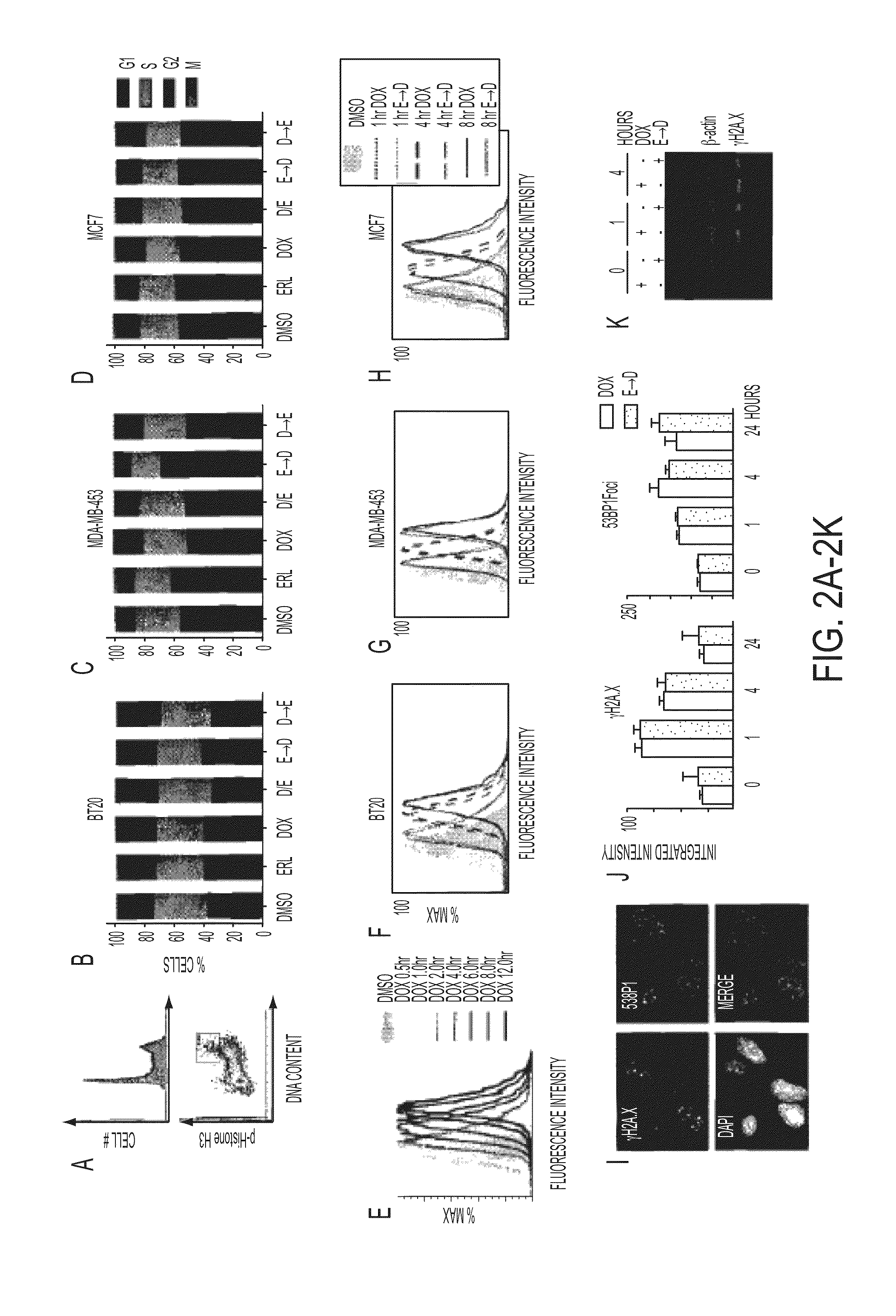
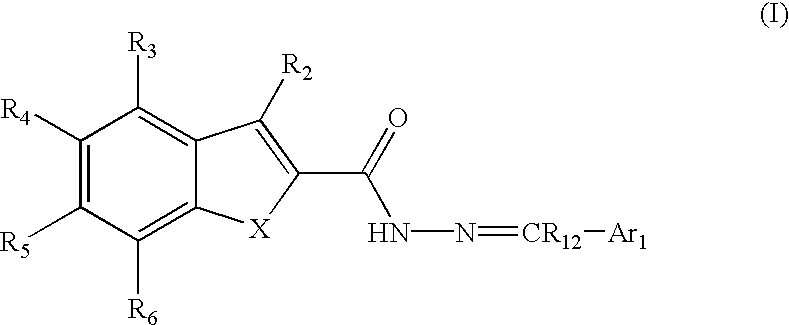
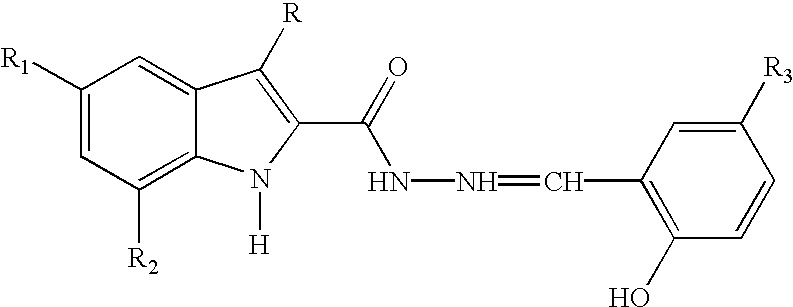
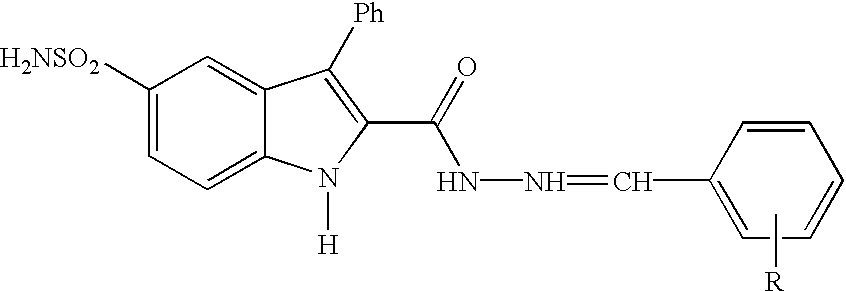
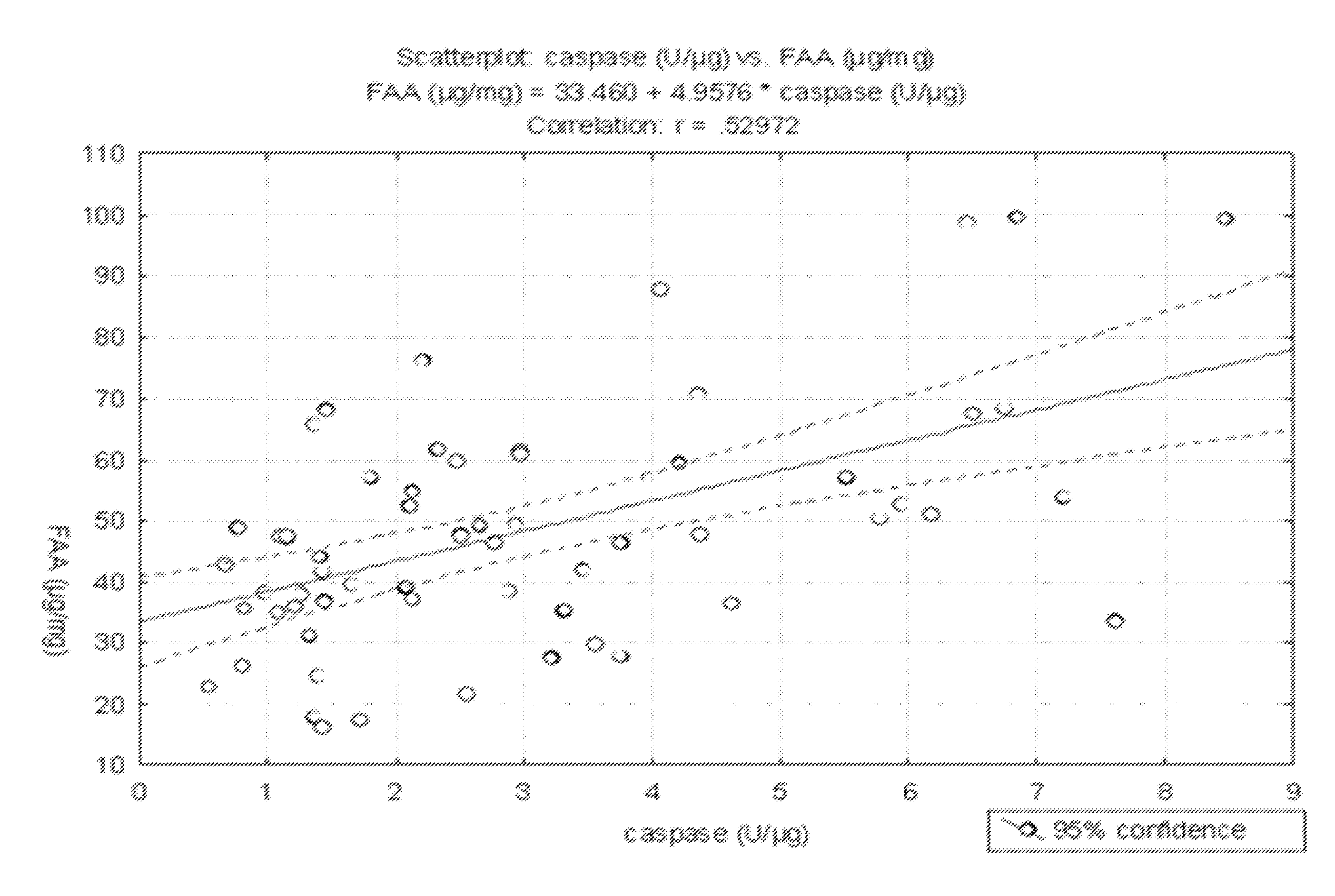

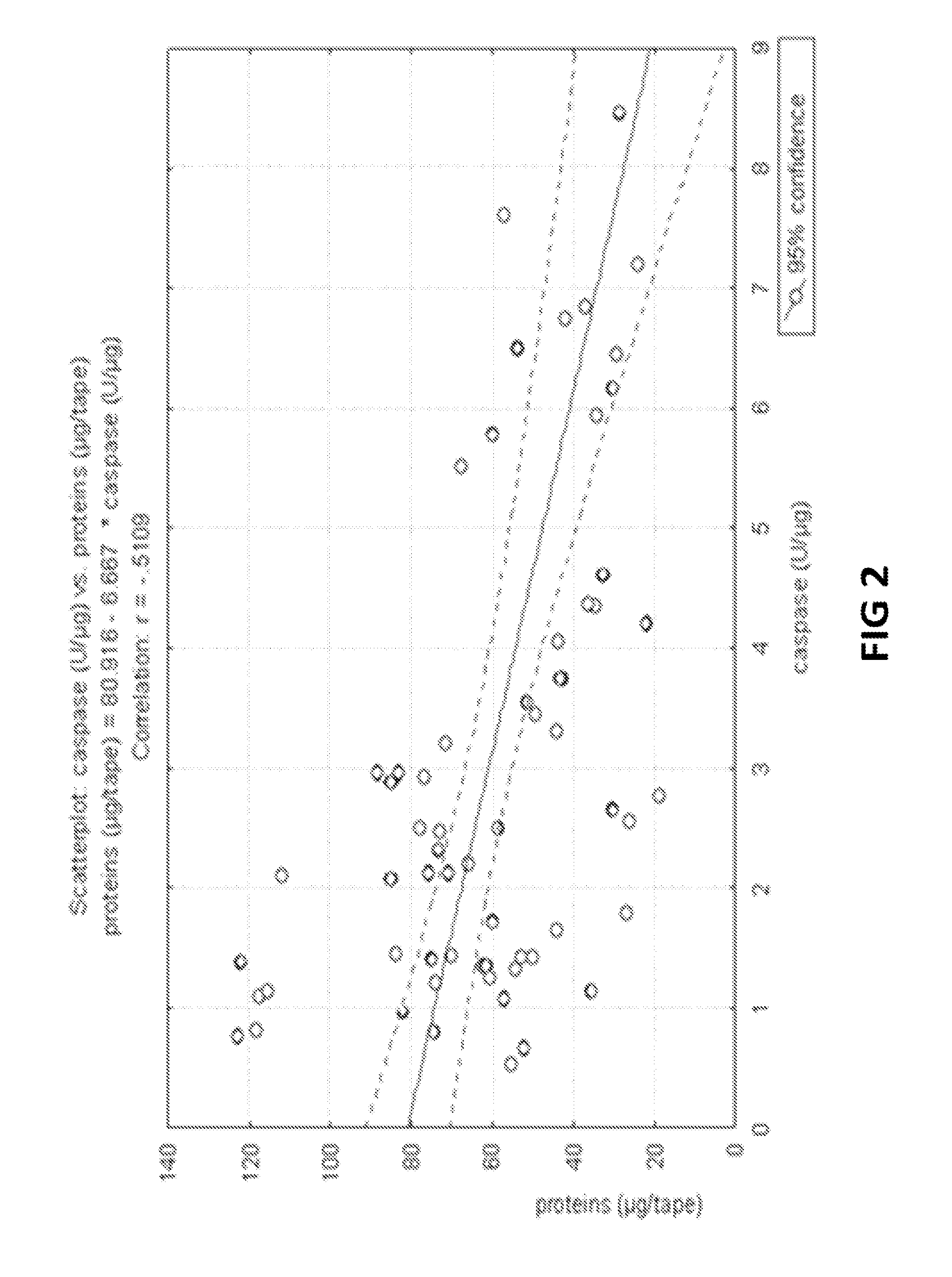





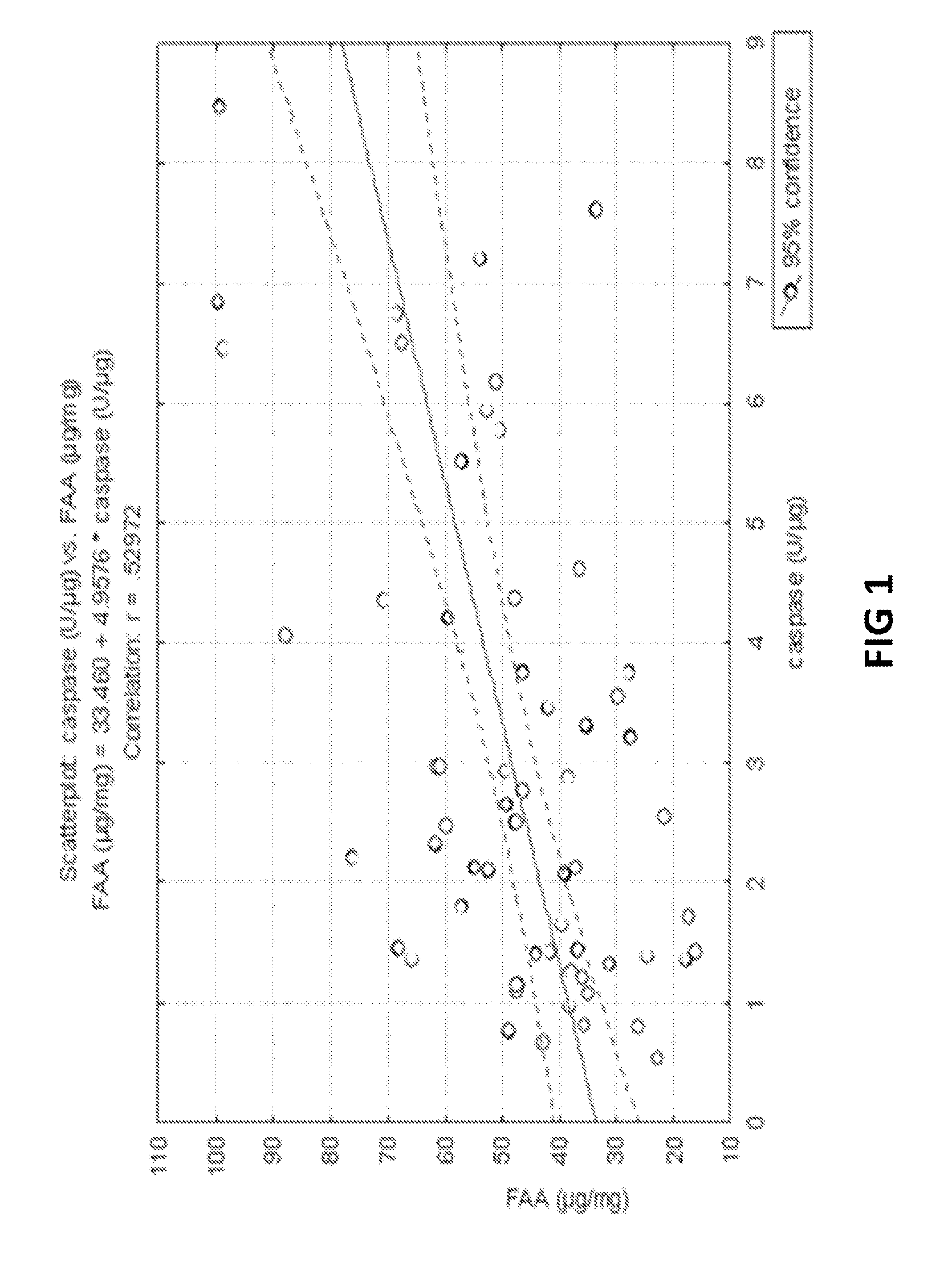
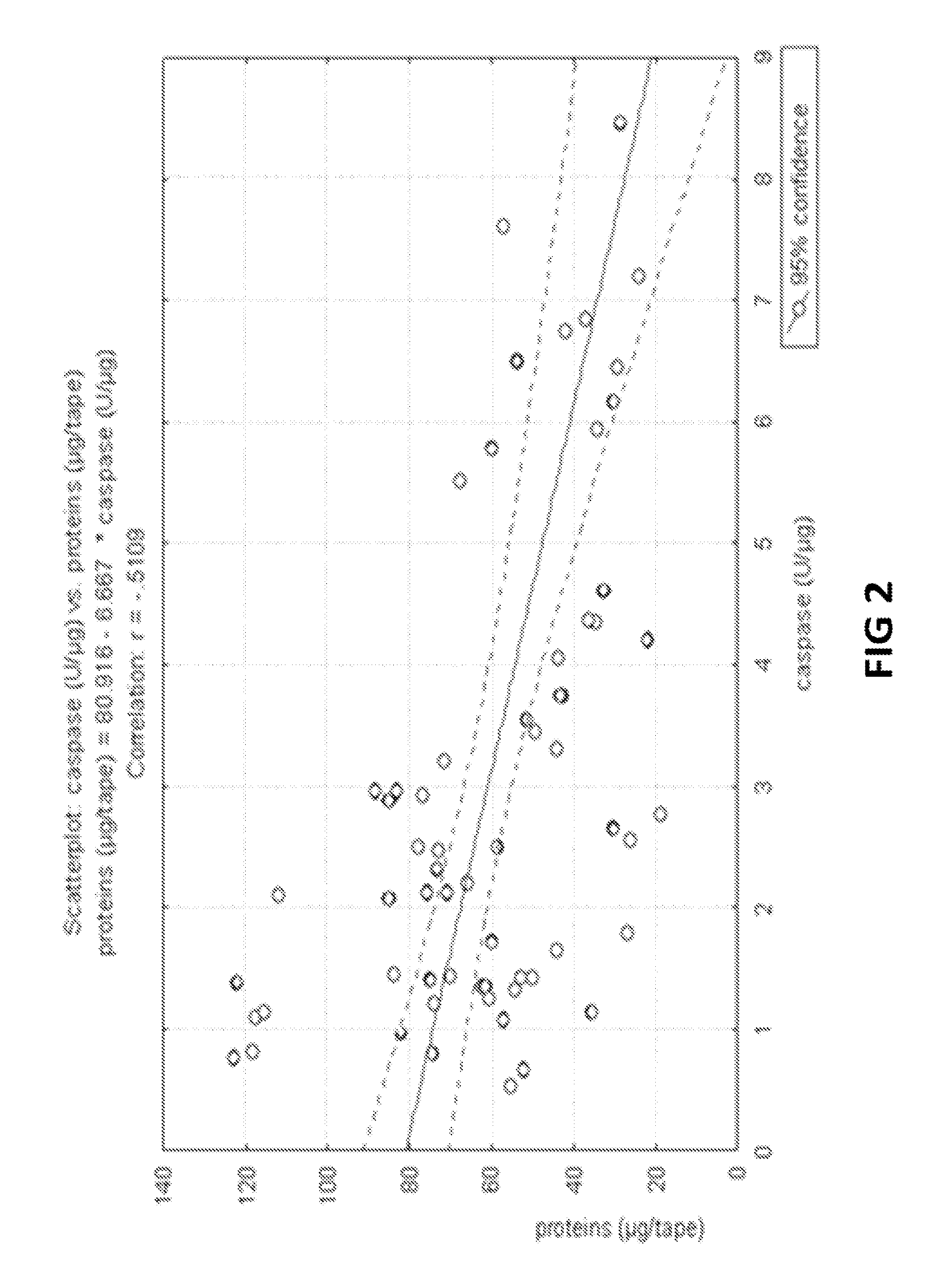
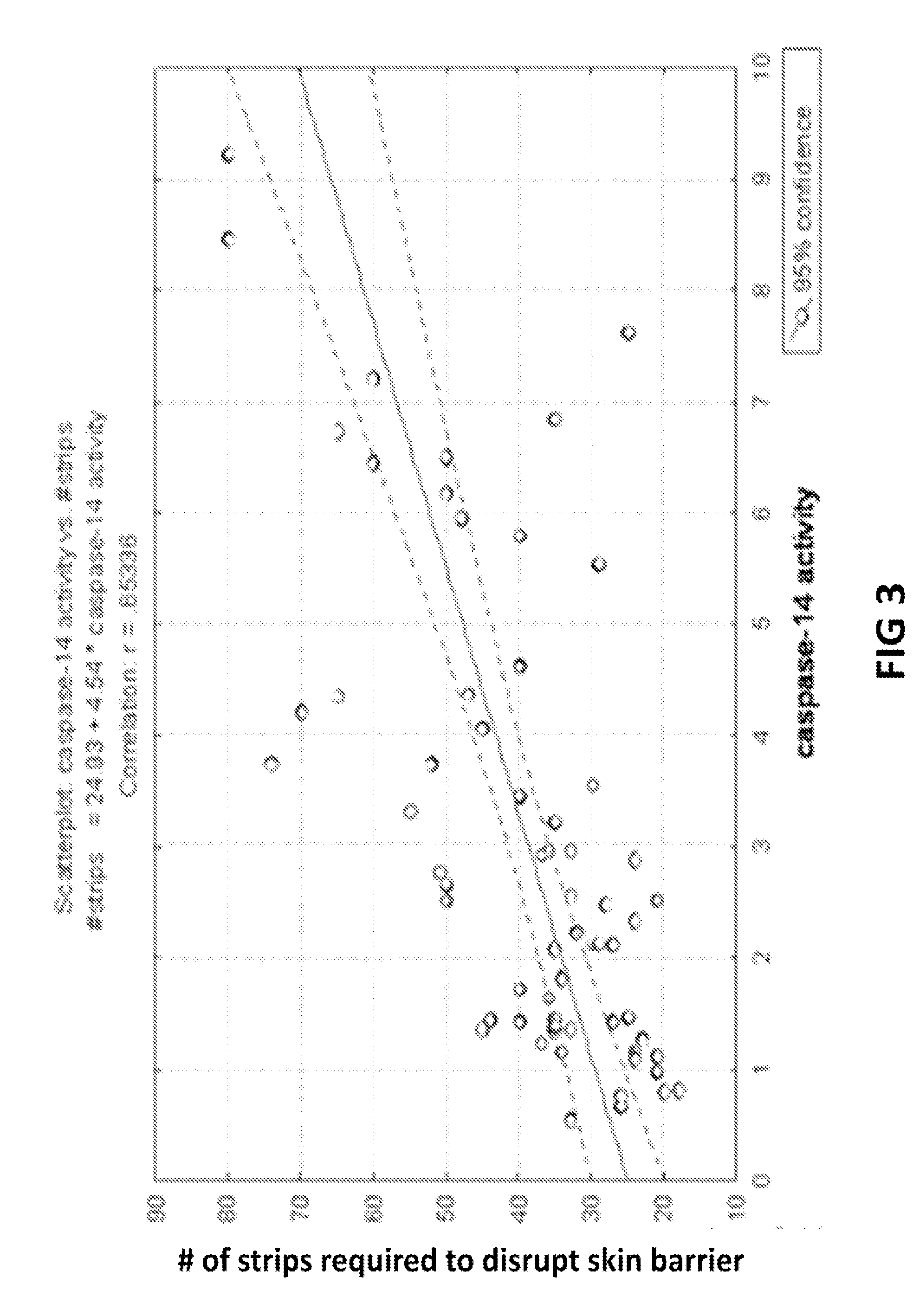
![Substituted 1-benzoyl-3-cyano-pyrrolo [1,2-a] quinolines and analogs as activators of caspases and inducers of apoptosis Substituted 1-benzoyl-3-cyano-pyrrolo [1,2-a] quinolines and analogs as activators of caspases and inducers of apoptosis](https://images-eureka-patsnap-com.libproxy1.nus.edu.sg/patent_img/b4c2df6f-30a0-4fab-89c2-efc52eeee402/US07135480-20061114-C00001.png)
![Substituted 1-benzoyl-3-cyano-pyrrolo [1,2-a] quinolines and analogs as activators of caspases and inducers of apoptosis Substituted 1-benzoyl-3-cyano-pyrrolo [1,2-a] quinolines and analogs as activators of caspases and inducers of apoptosis](https://images-eureka-patsnap-com.libproxy1.nus.edu.sg/patent_img/b4c2df6f-30a0-4fab-89c2-efc52eeee402/US07135480-20061114-C00002.png)
![Substituted 1-benzoyl-3-cyano-pyrrolo [1,2-a] quinolines and analogs as activators of caspases and inducers of apoptosis Substituted 1-benzoyl-3-cyano-pyrrolo [1,2-a] quinolines and analogs as activators of caspases and inducers of apoptosis](https://images-eureka-patsnap-com.libproxy1.nus.edu.sg/patent_img/b4c2df6f-30a0-4fab-89c2-efc52eeee402/US07135480-20061114-C00003.png)
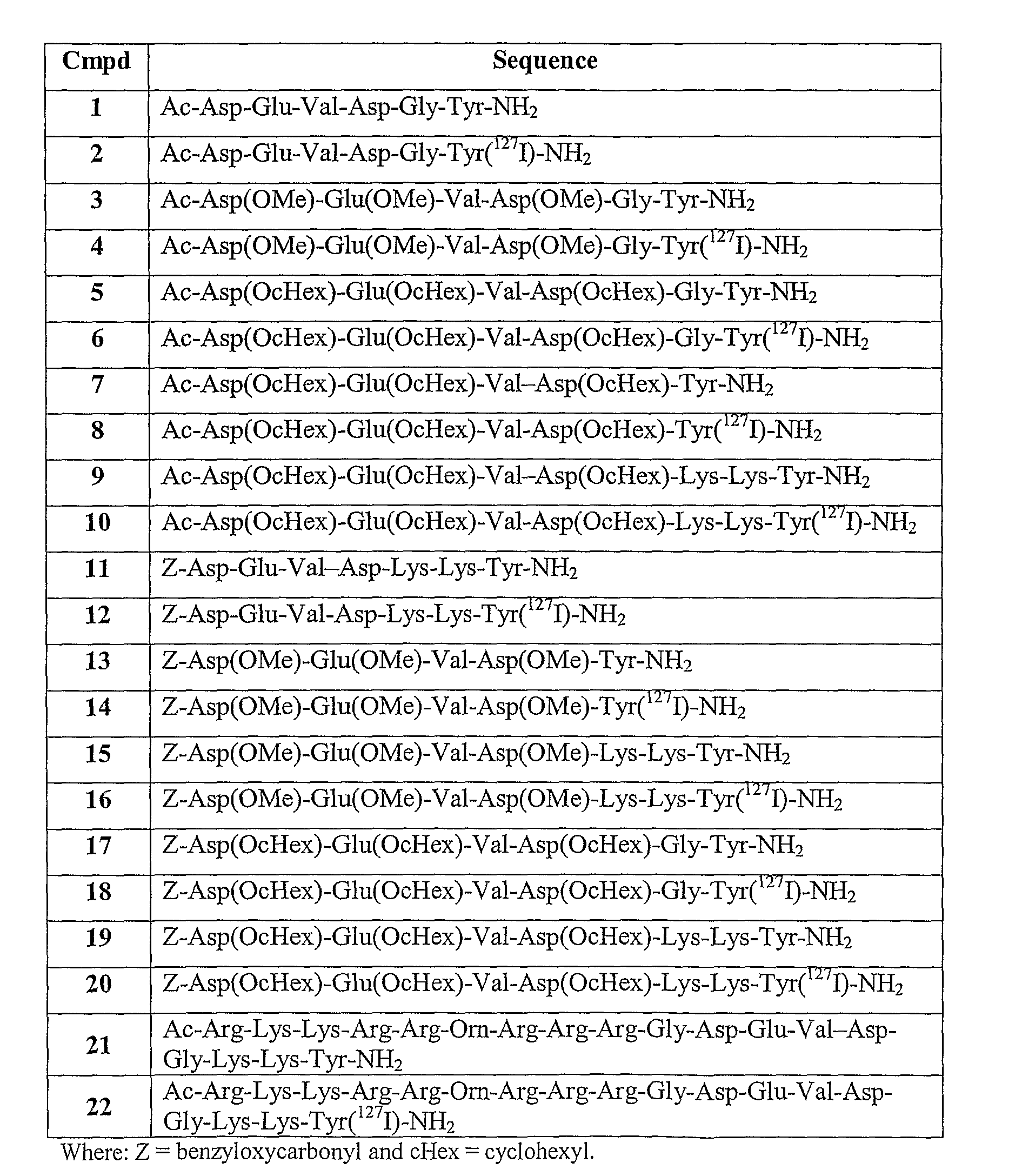
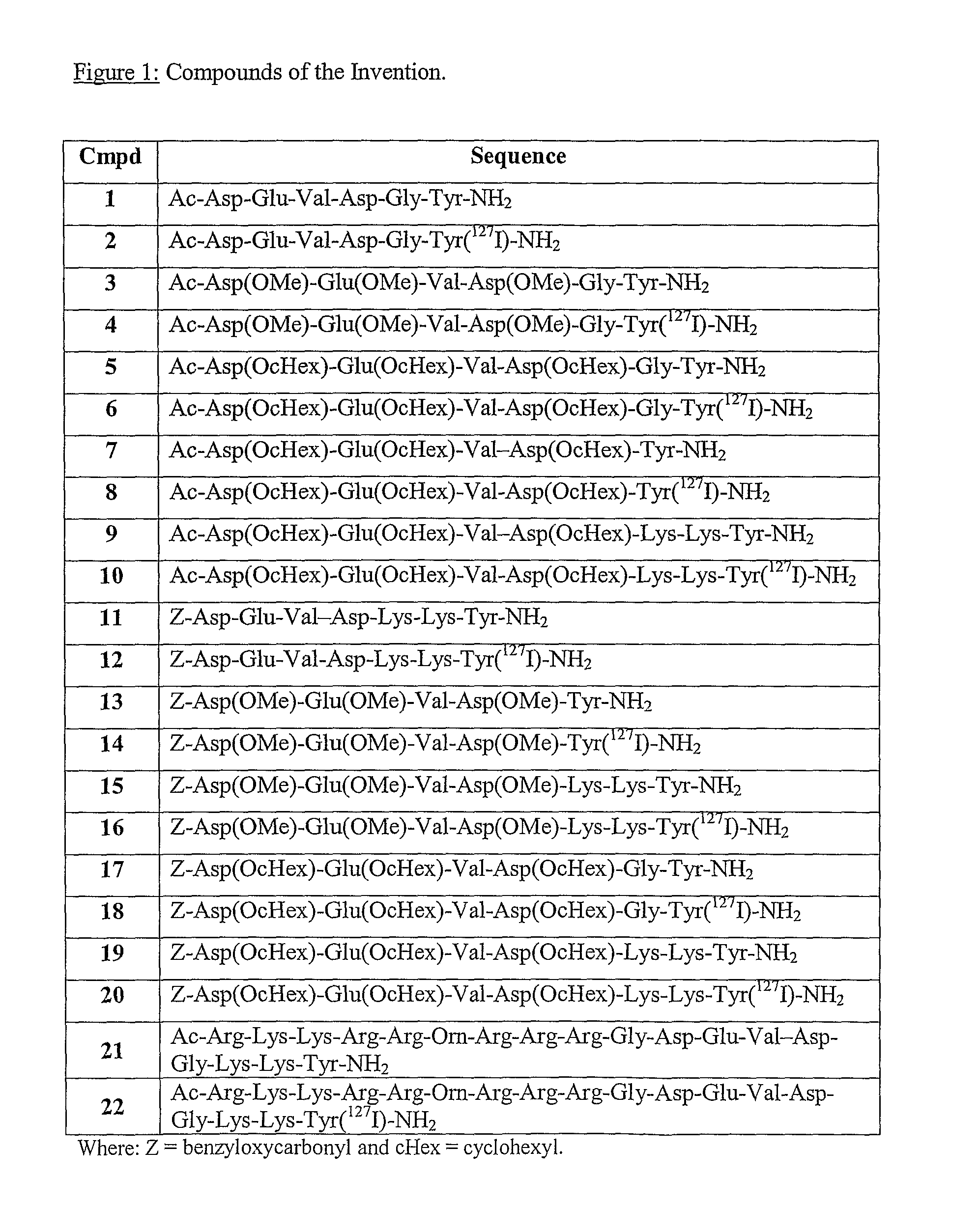
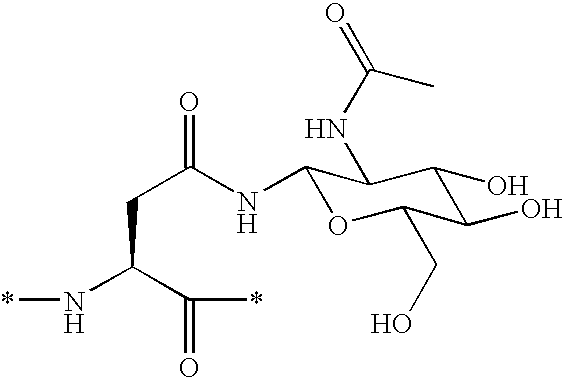
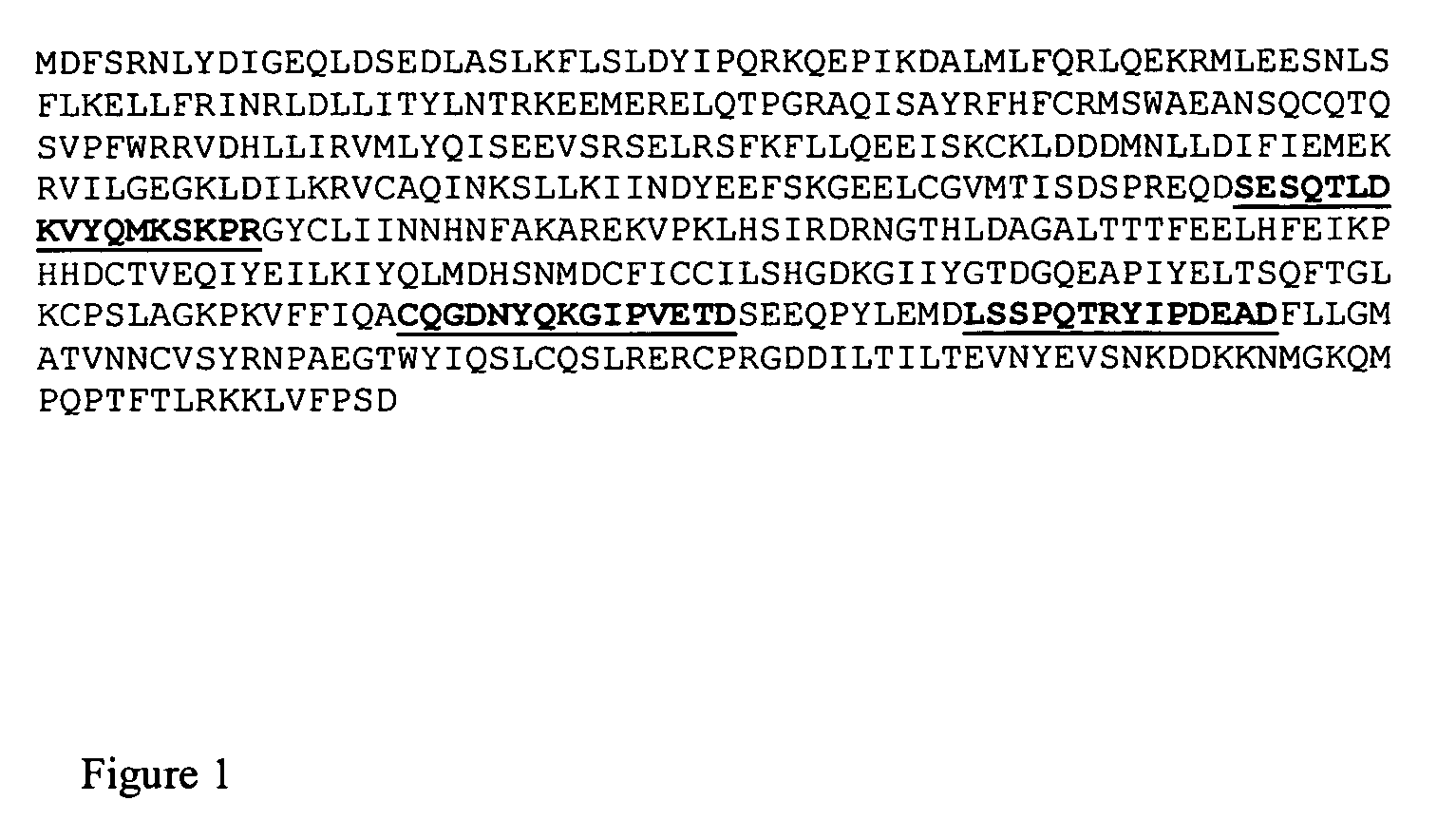
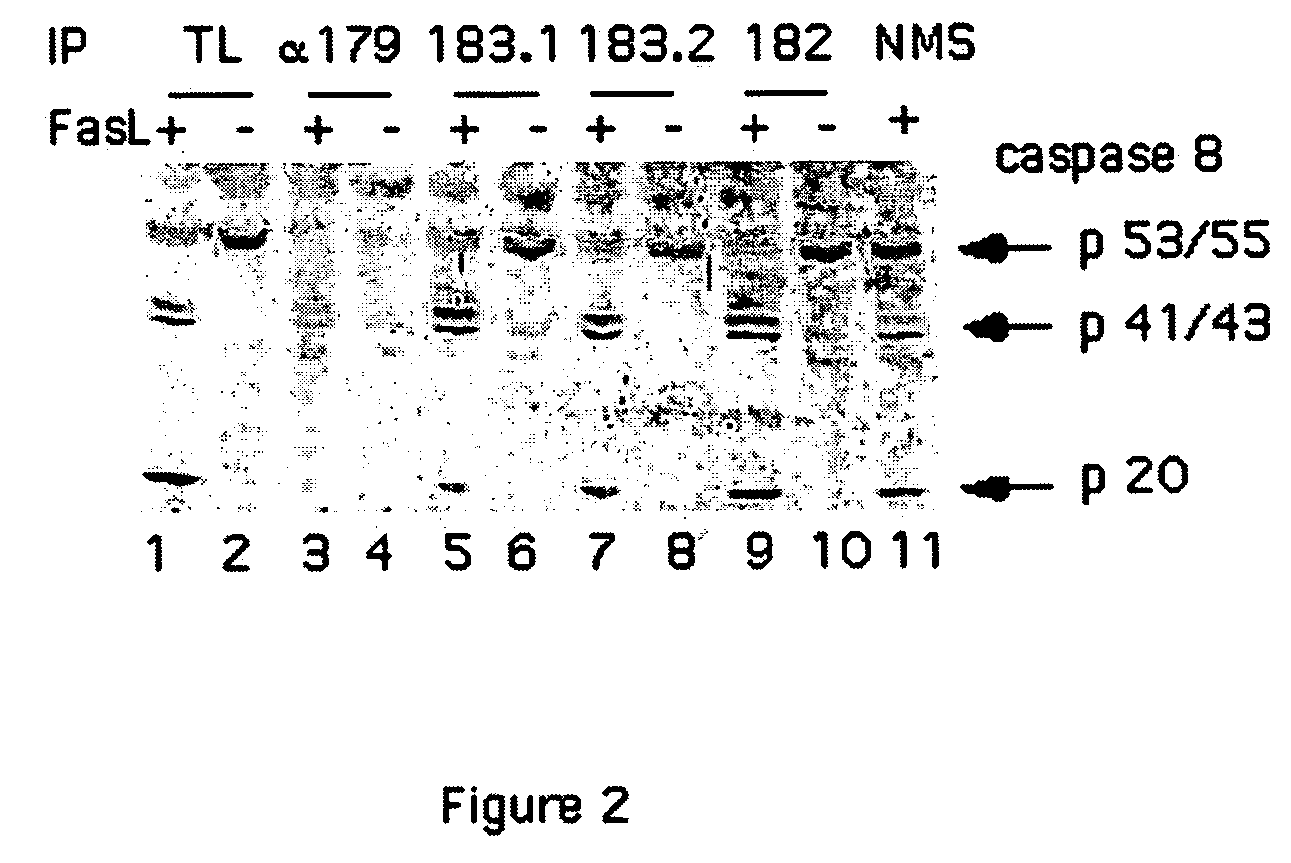
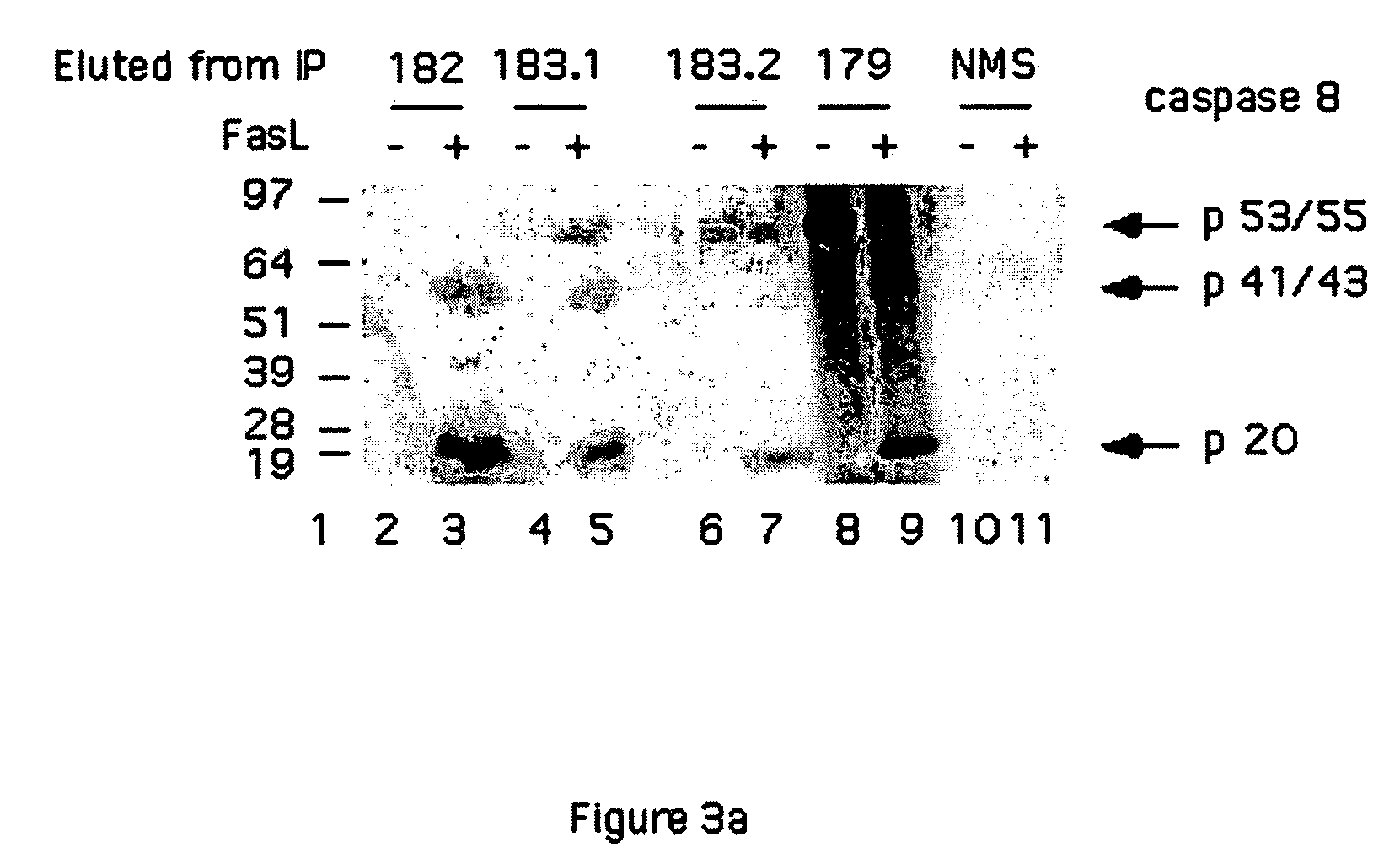
![3-Aryl-6-aryl-7H-[1,2,4]triazolo[3,4-b][1,3,4]thiadiazines and analogs as activators of caspases and inducers of apoptosis and the use thereof 3-Aryl-6-aryl-7H-[1,2,4]triazolo[3,4-b][1,3,4]thiadiazines and analogs as activators of caspases and inducers of apoptosis and the use thereof](https://images-eureka-patsnap-com.libproxy1.nus.edu.sg/patent_img/8fc0e28c-6136-4336-be92-1c0c470aa48b/US20080045514A1-20080221-C00001.png)
![3-Aryl-6-aryl-7H-[1,2,4]triazolo[3,4-b][1,3,4]thiadiazines and analogs as activators of caspases and inducers of apoptosis and the use thereof 3-Aryl-6-aryl-7H-[1,2,4]triazolo[3,4-b][1,3,4]thiadiazines and analogs as activators of caspases and inducers of apoptosis and the use thereof](https://images-eureka-patsnap-com.libproxy1.nus.edu.sg/patent_img/8fc0e28c-6136-4336-be92-1c0c470aa48b/US20080045514A1-20080221-C00002.png)
![3-Aryl-6-aryl-7H-[1,2,4]triazolo[3,4-b][1,3,4]thiadiazines and analogs as activators of caspases and inducers of apoptosis and the use thereof 3-Aryl-6-aryl-7H-[1,2,4]triazolo[3,4-b][1,3,4]thiadiazines and analogs as activators of caspases and inducers of apoptosis and the use thereof](https://images-eureka-patsnap-com.libproxy1.nus.edu.sg/patent_img/8fc0e28c-6136-4336-be92-1c0c470aa48b/US20080045514A1-20080221-C00003.png)

